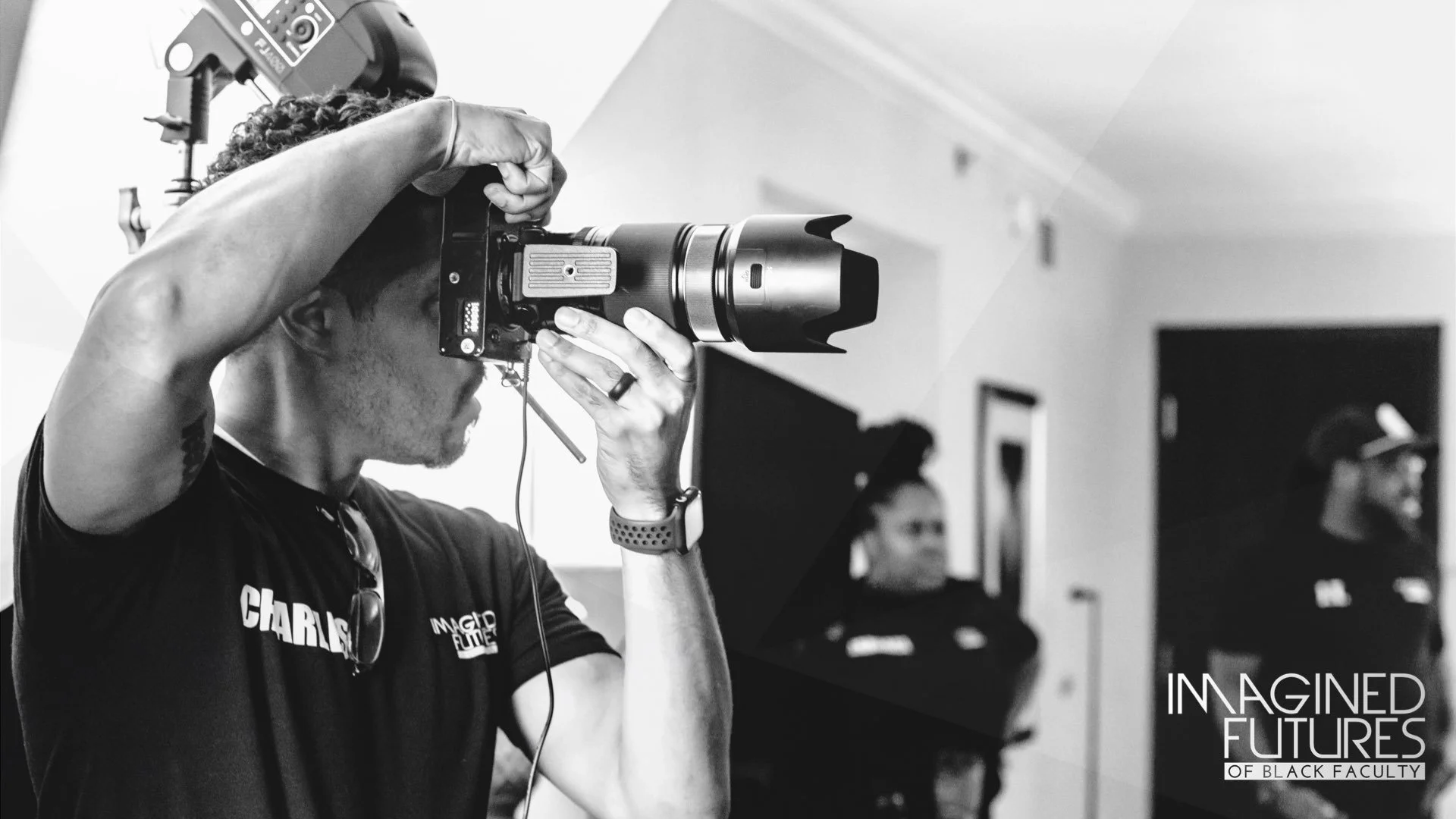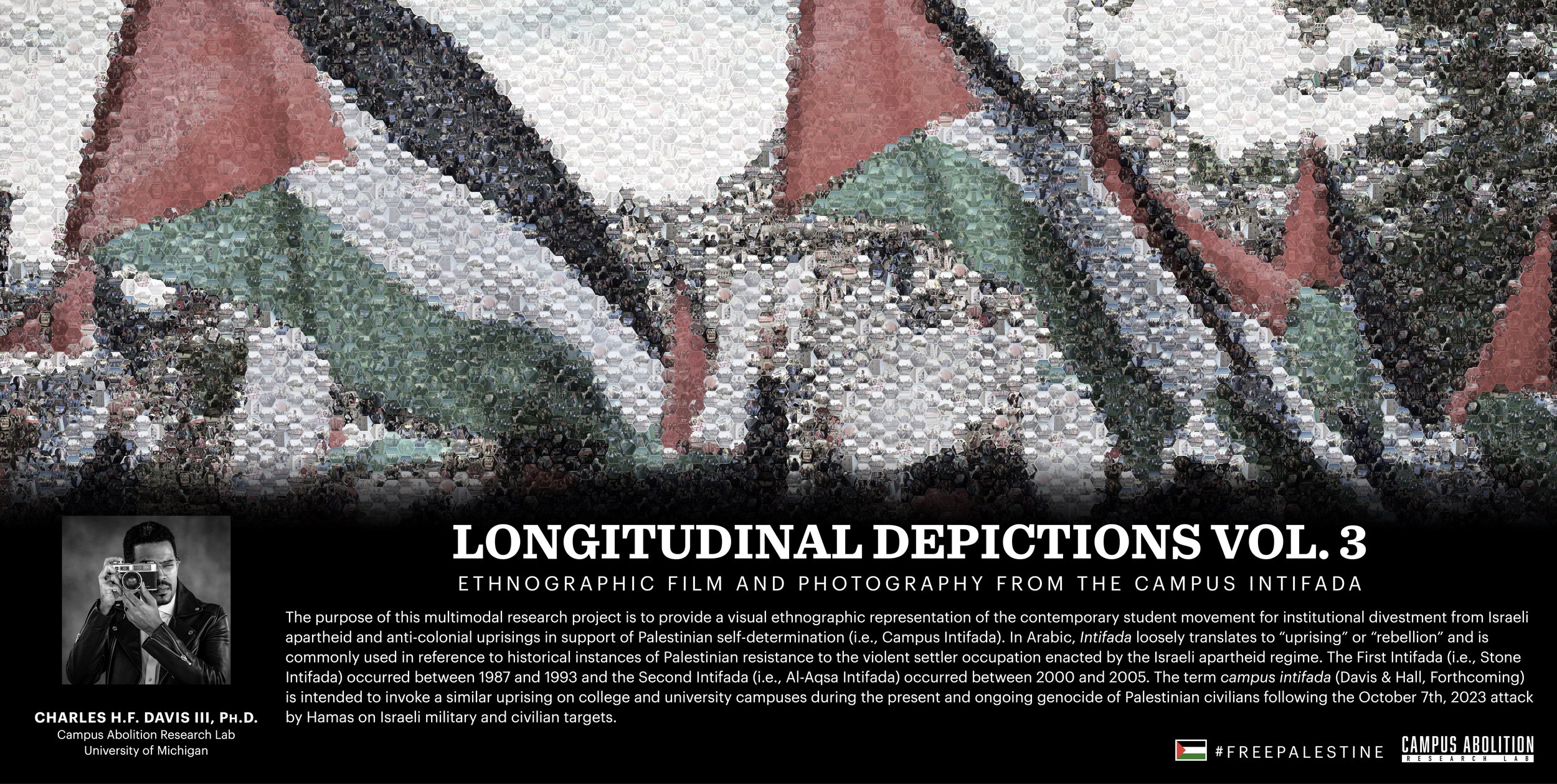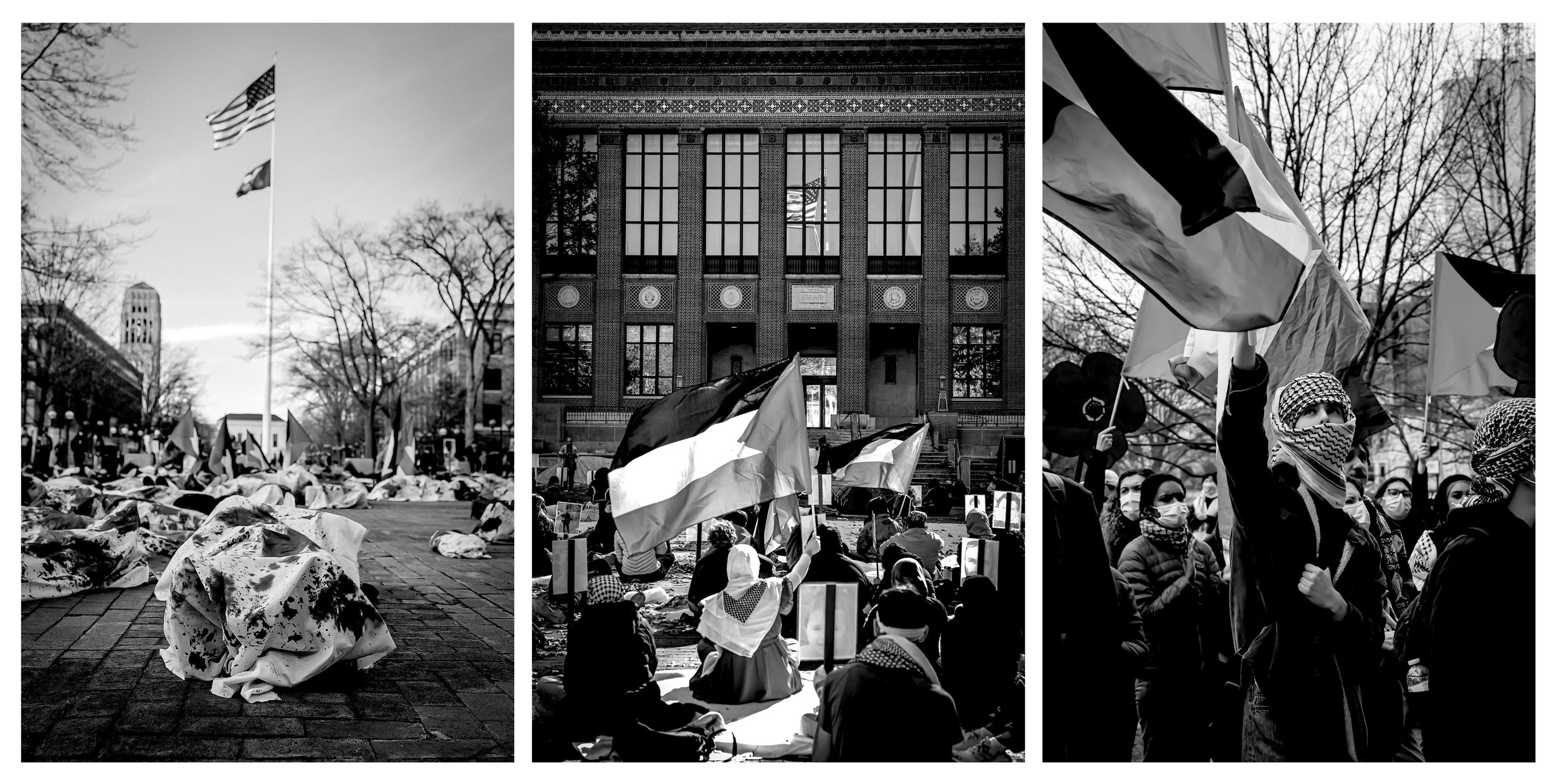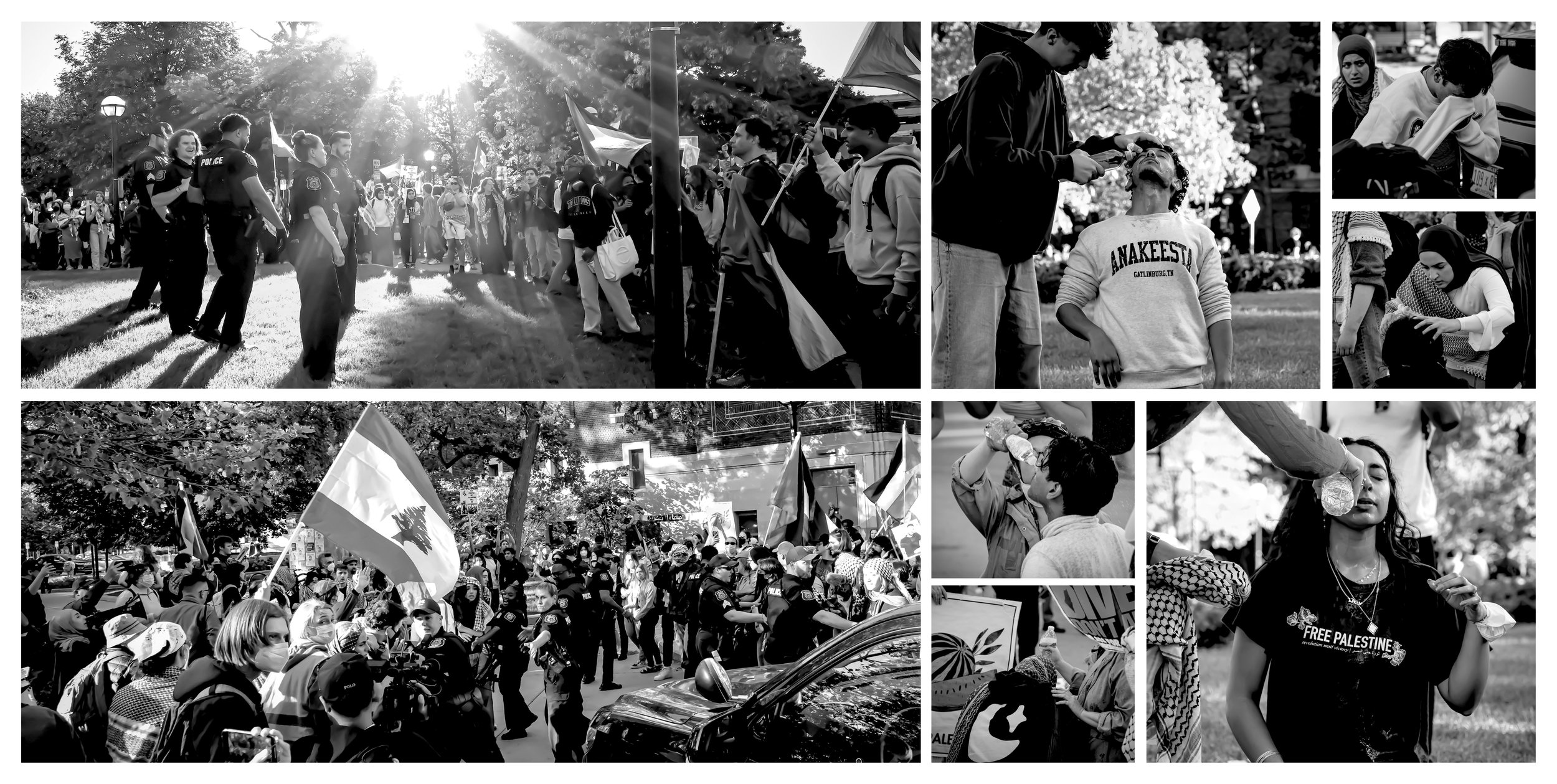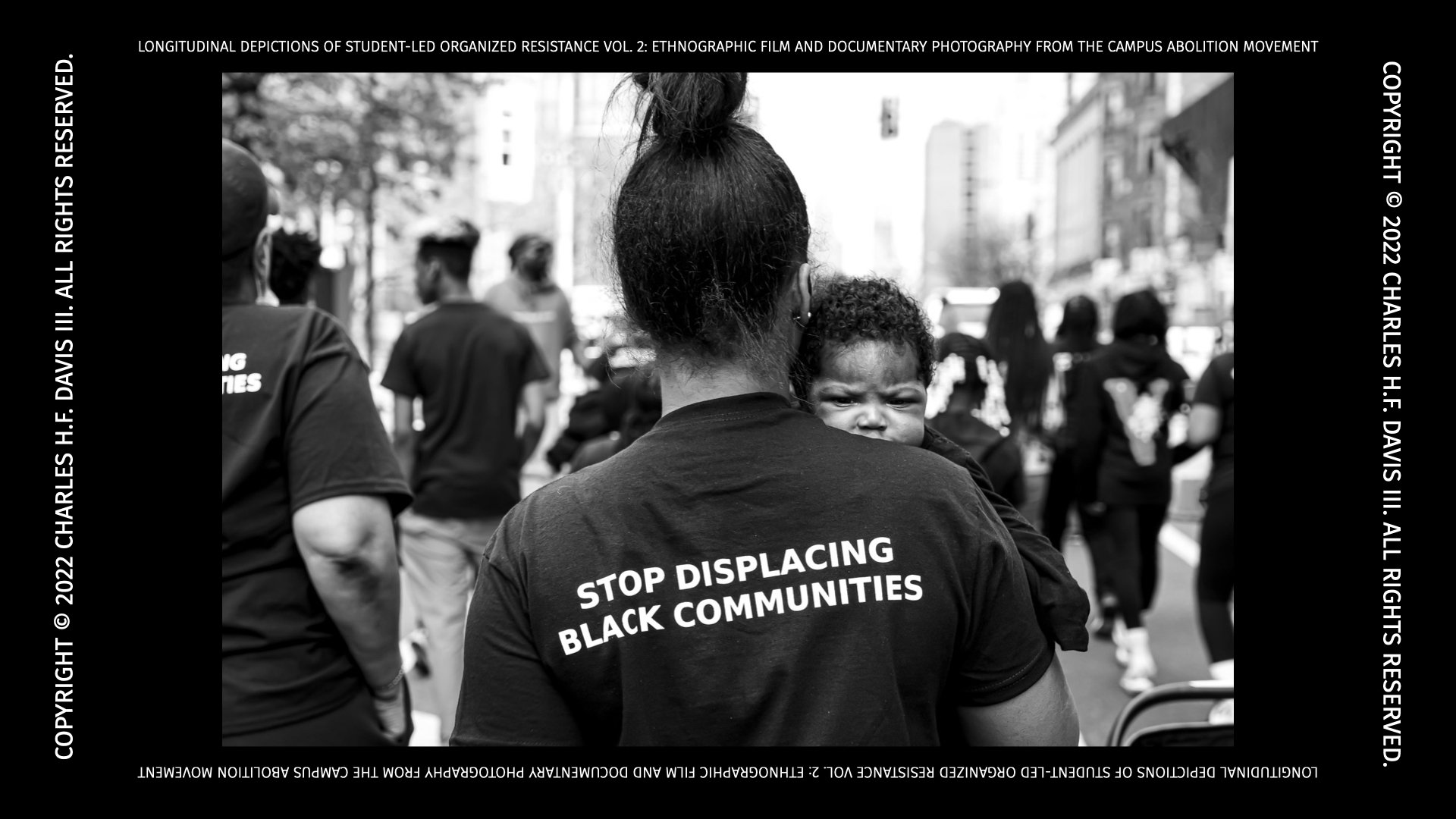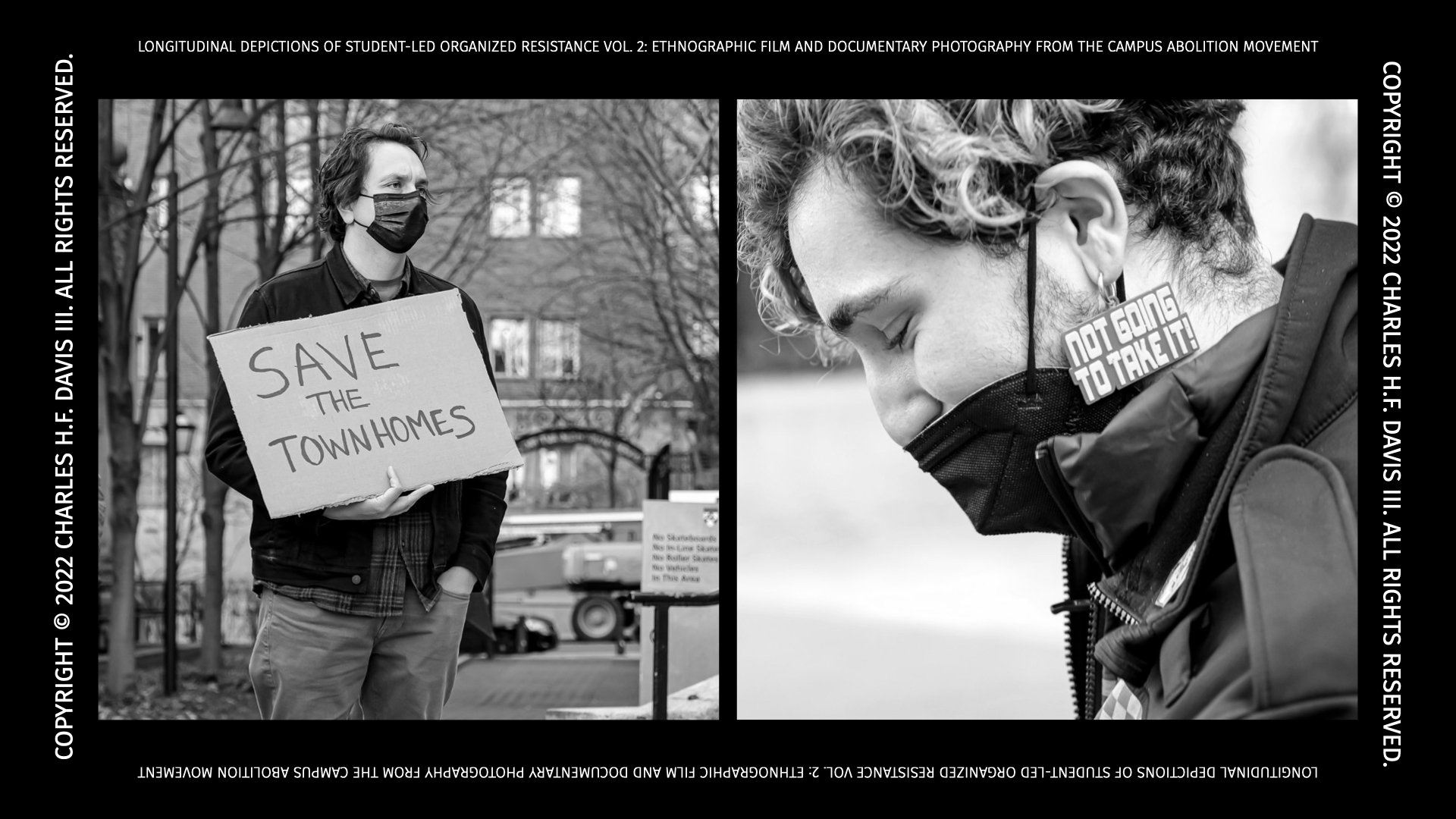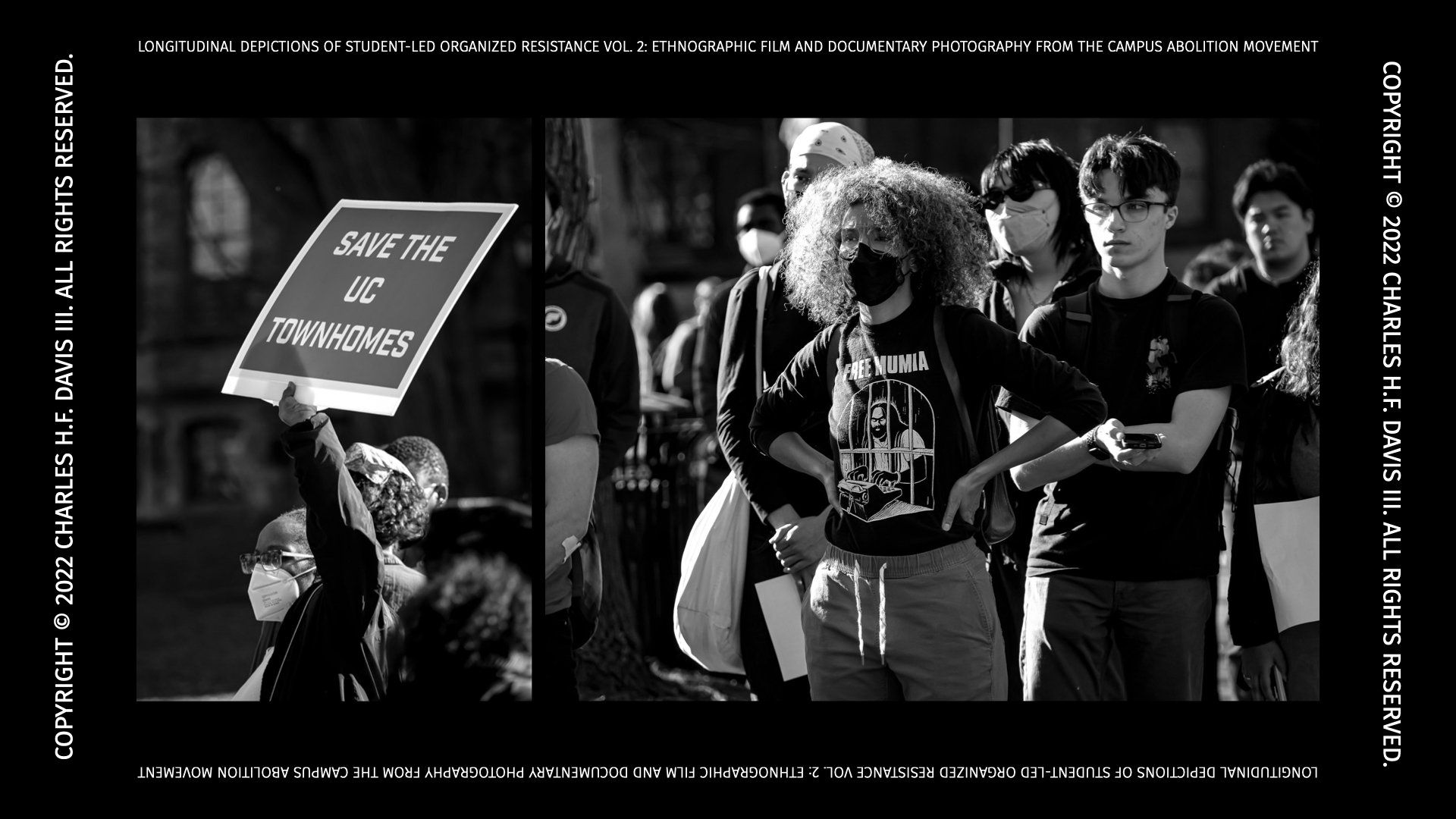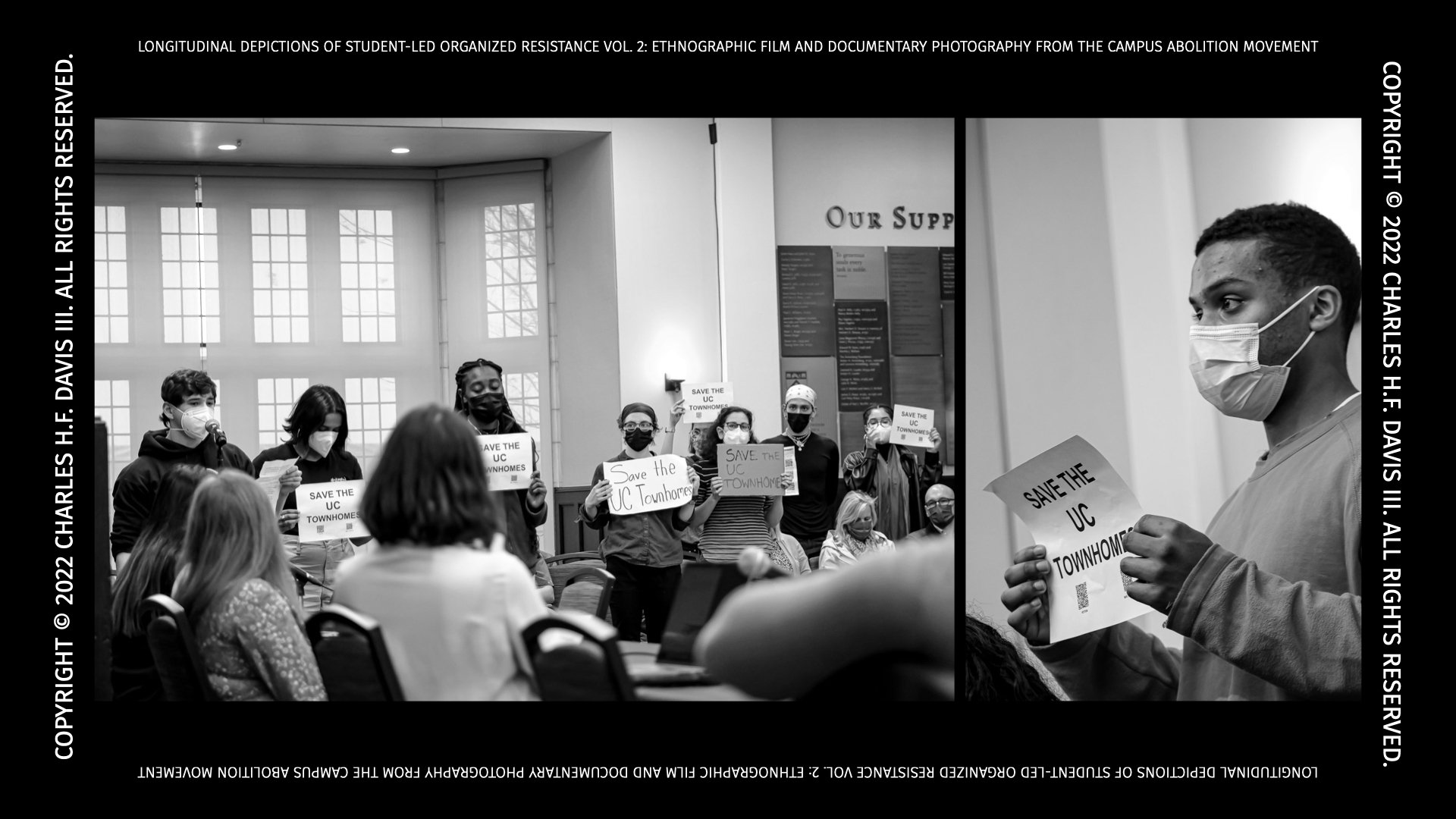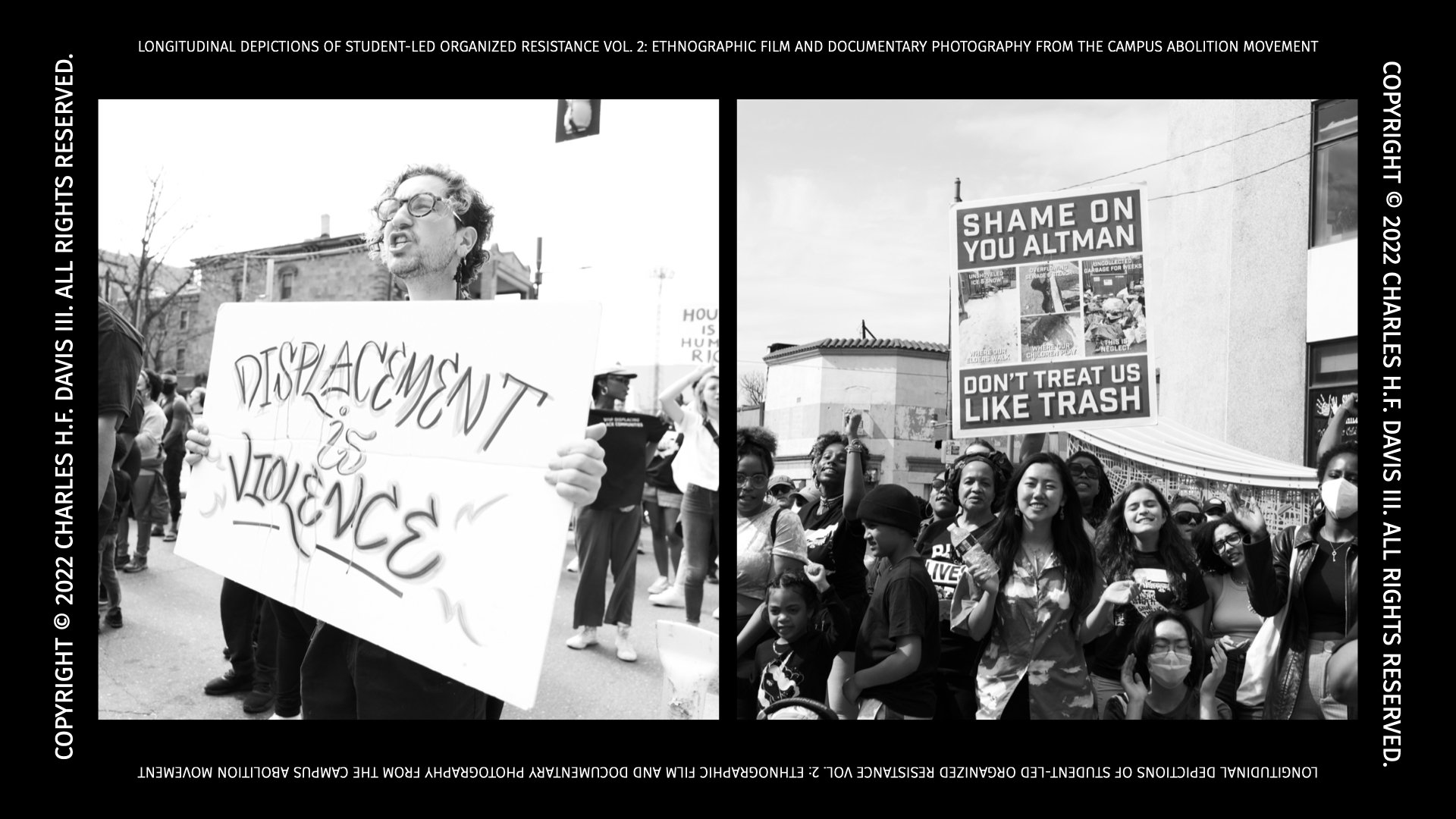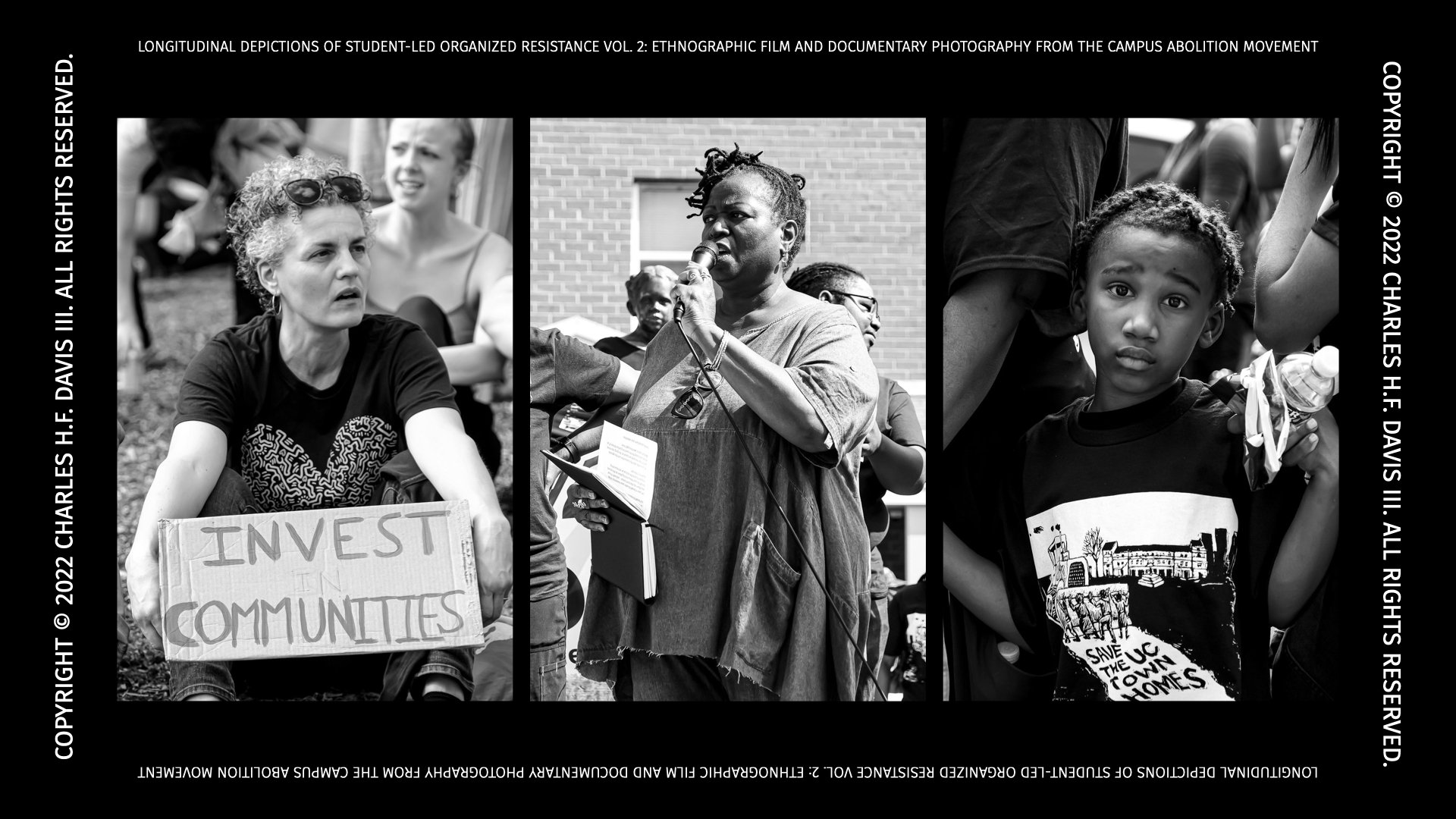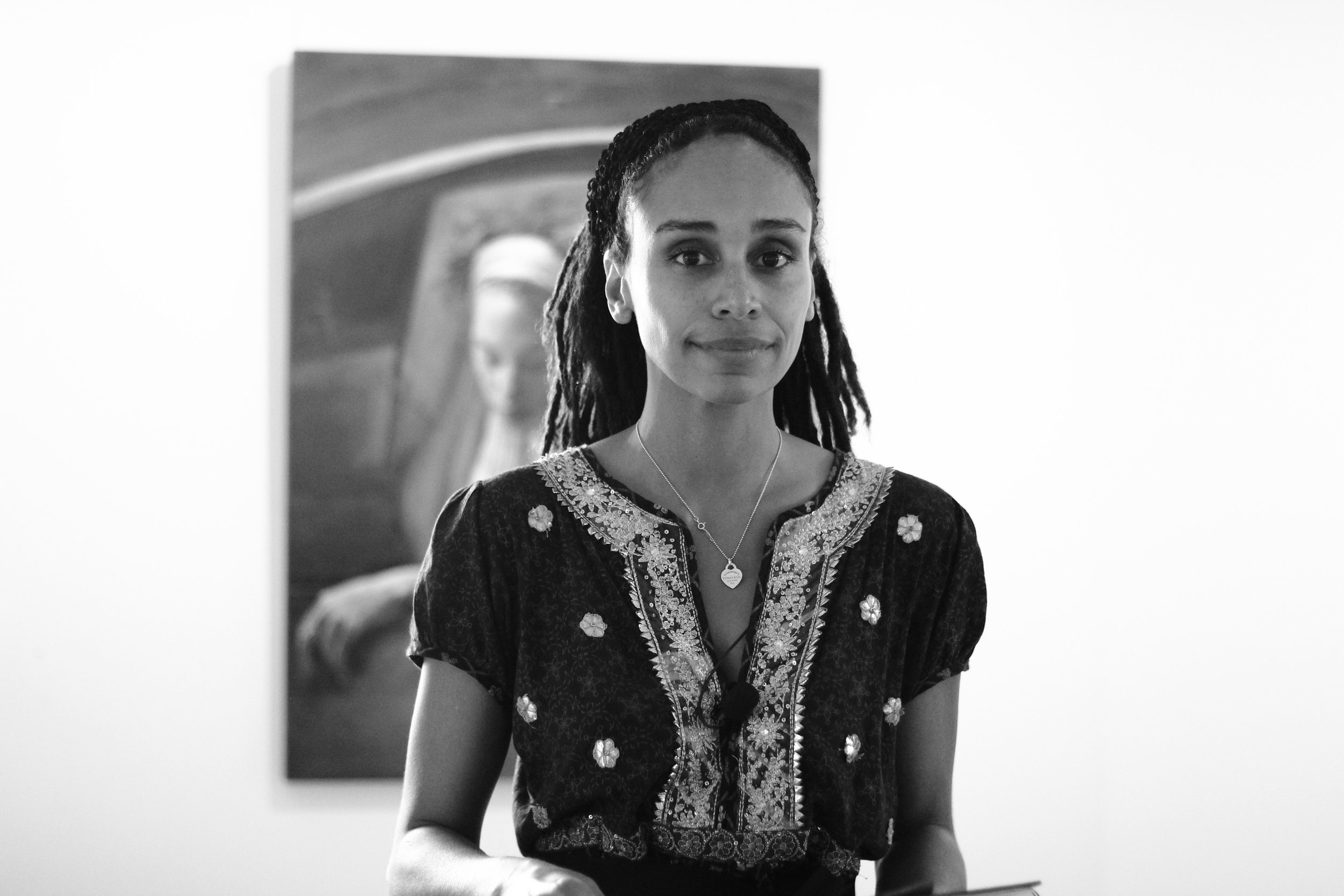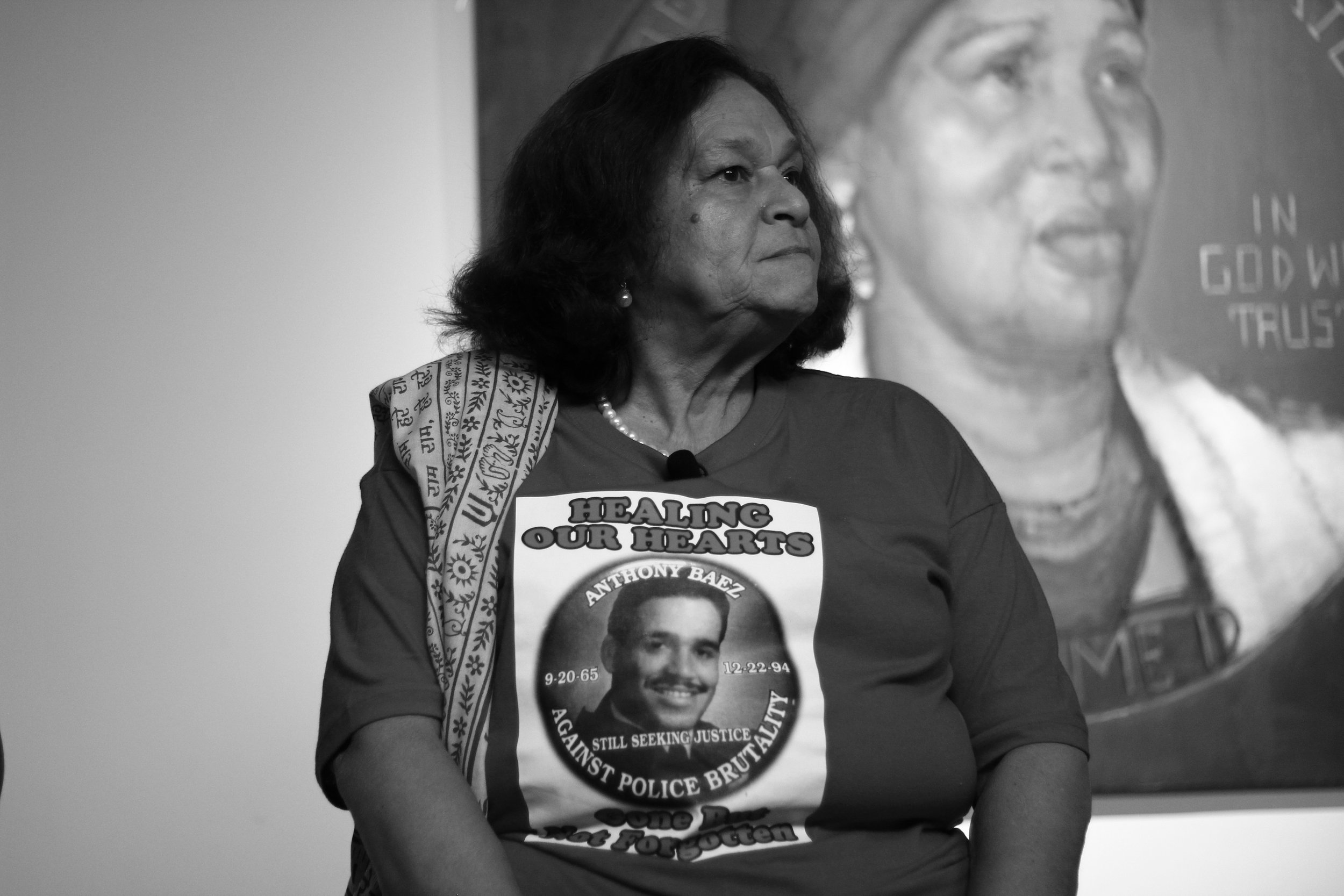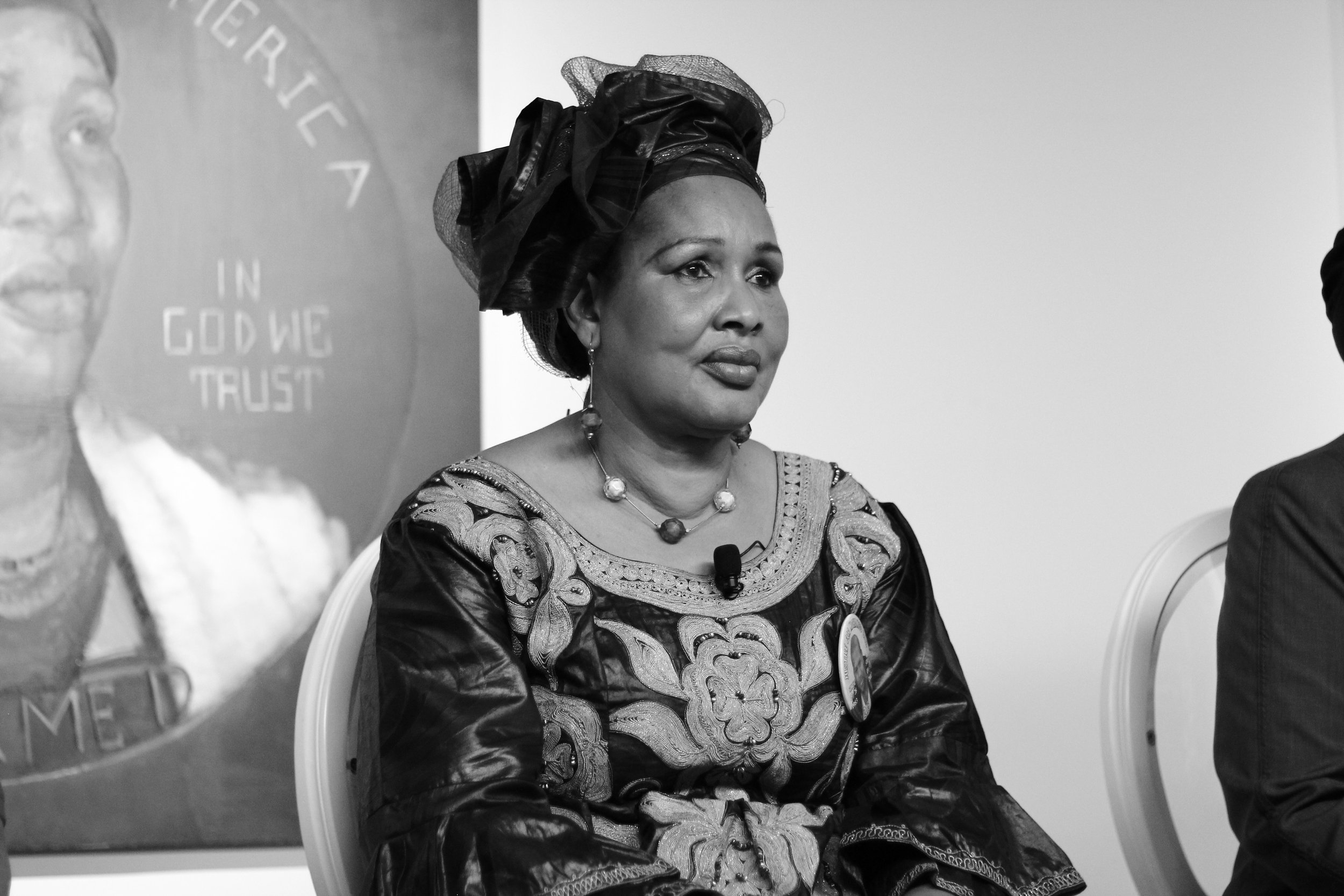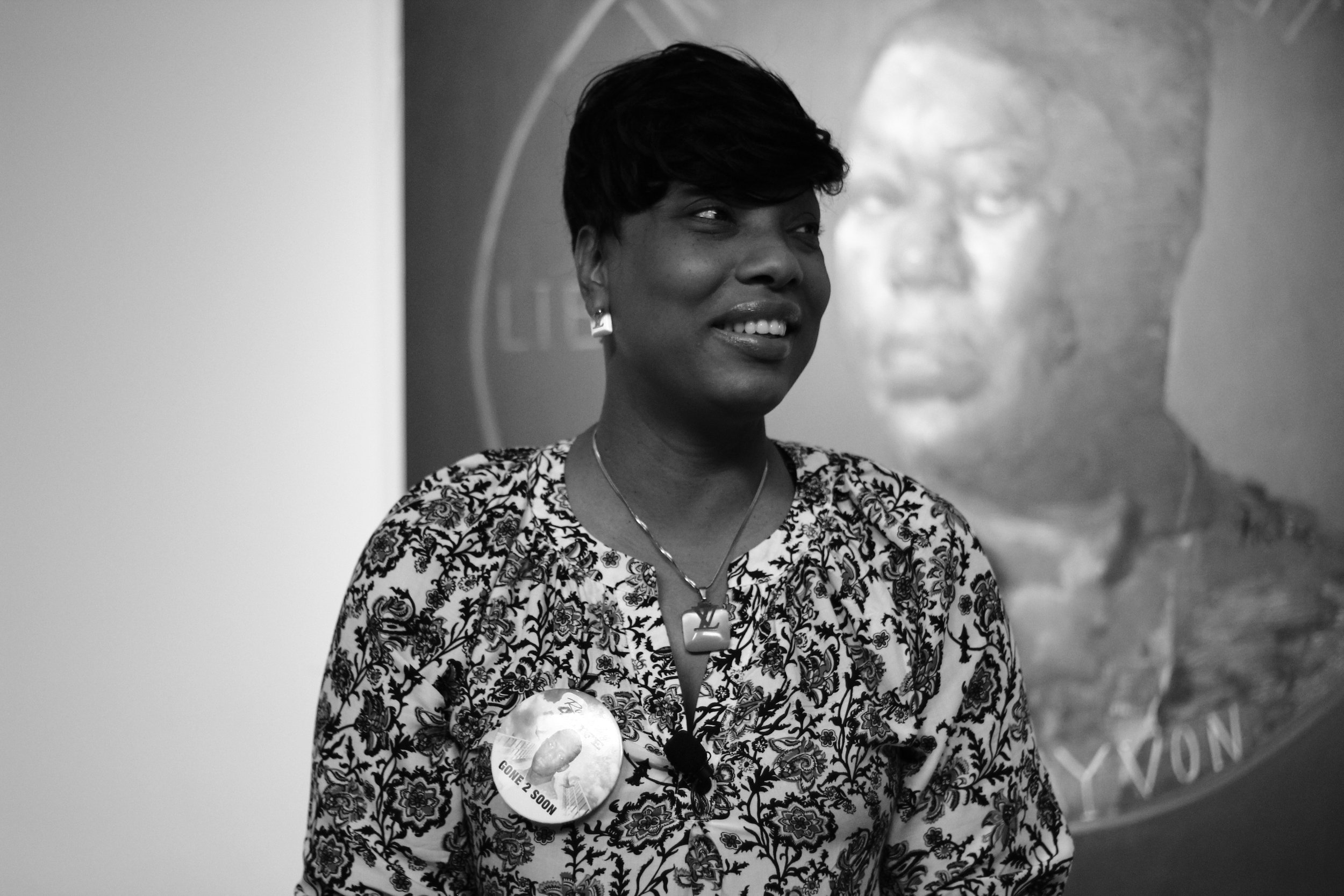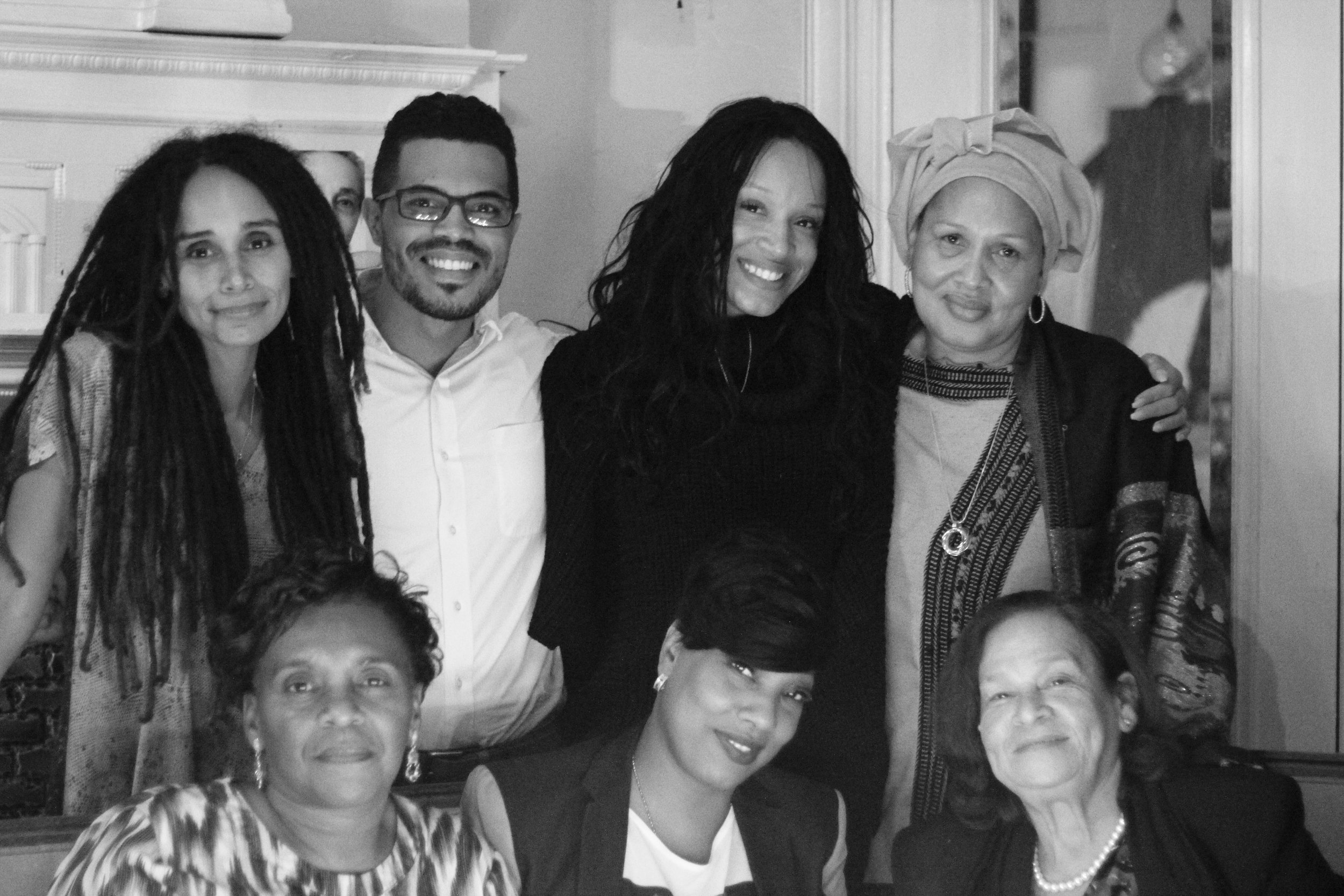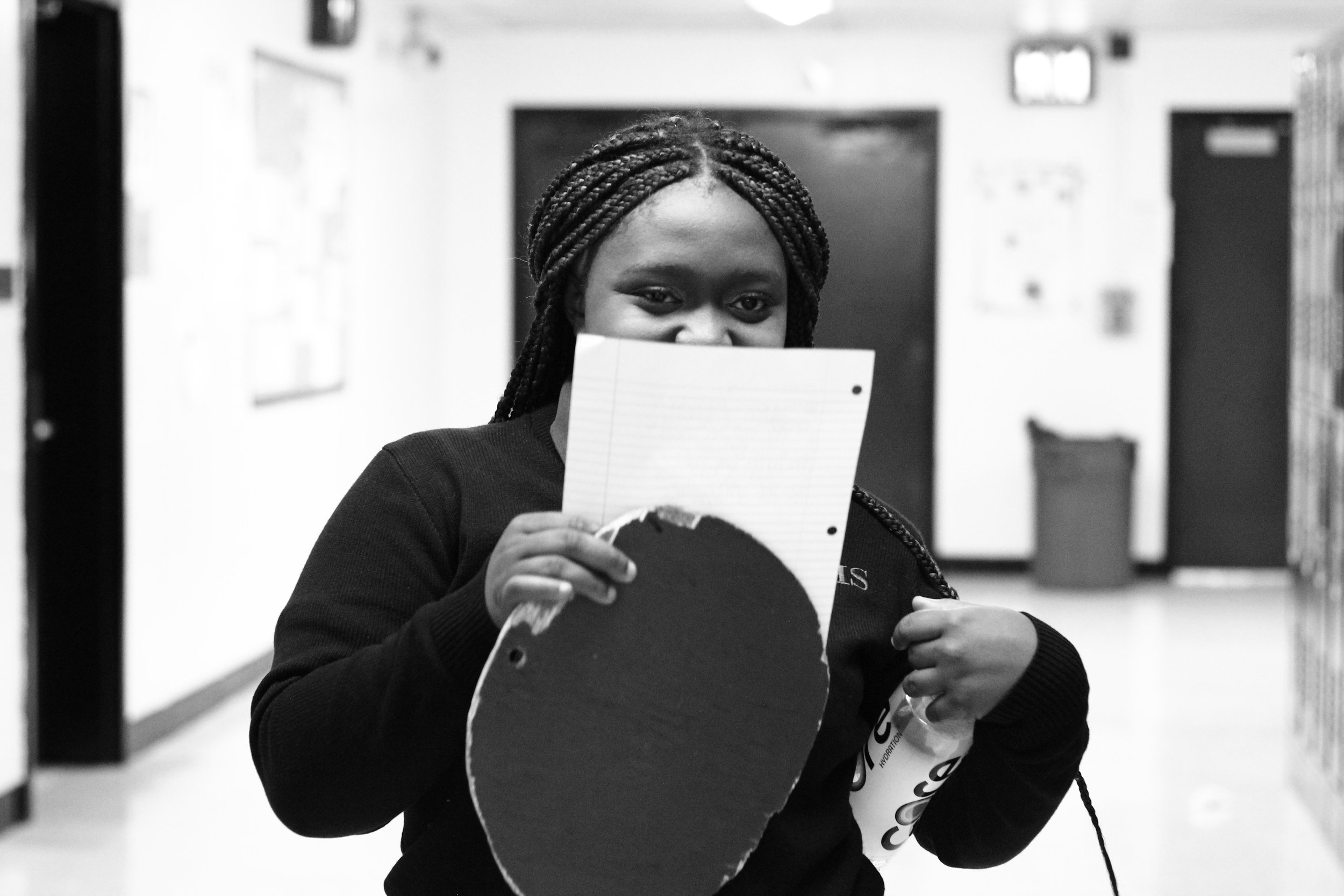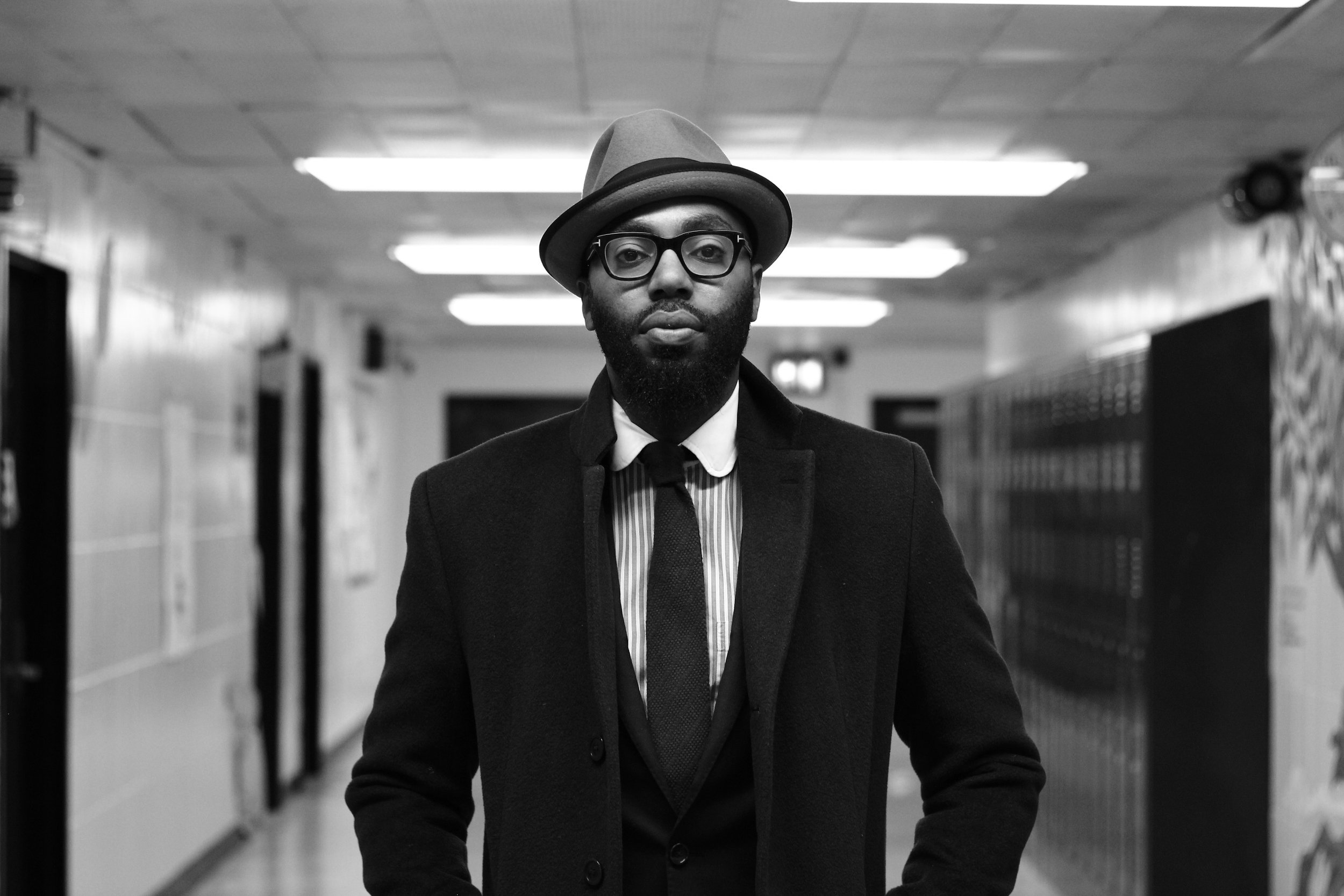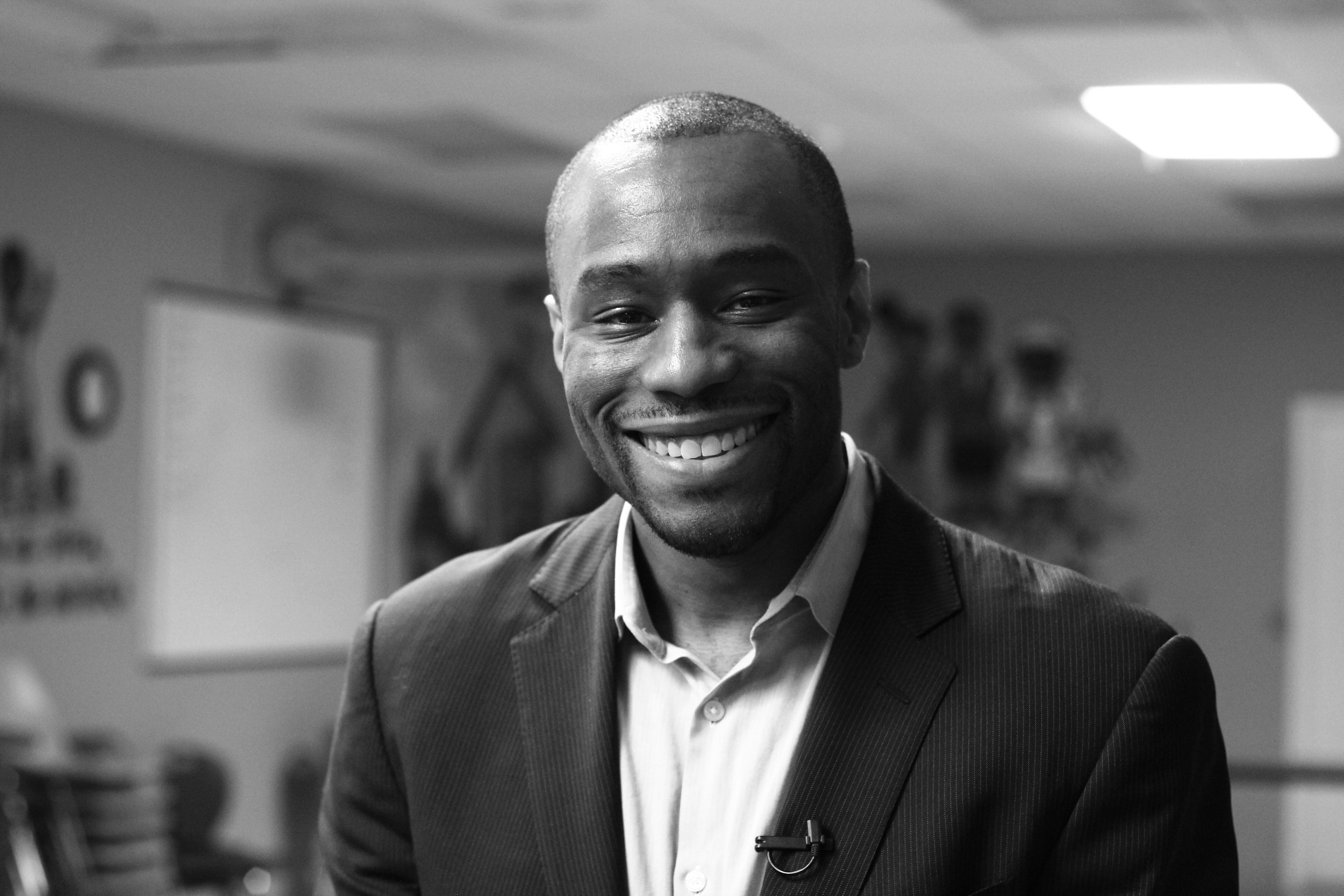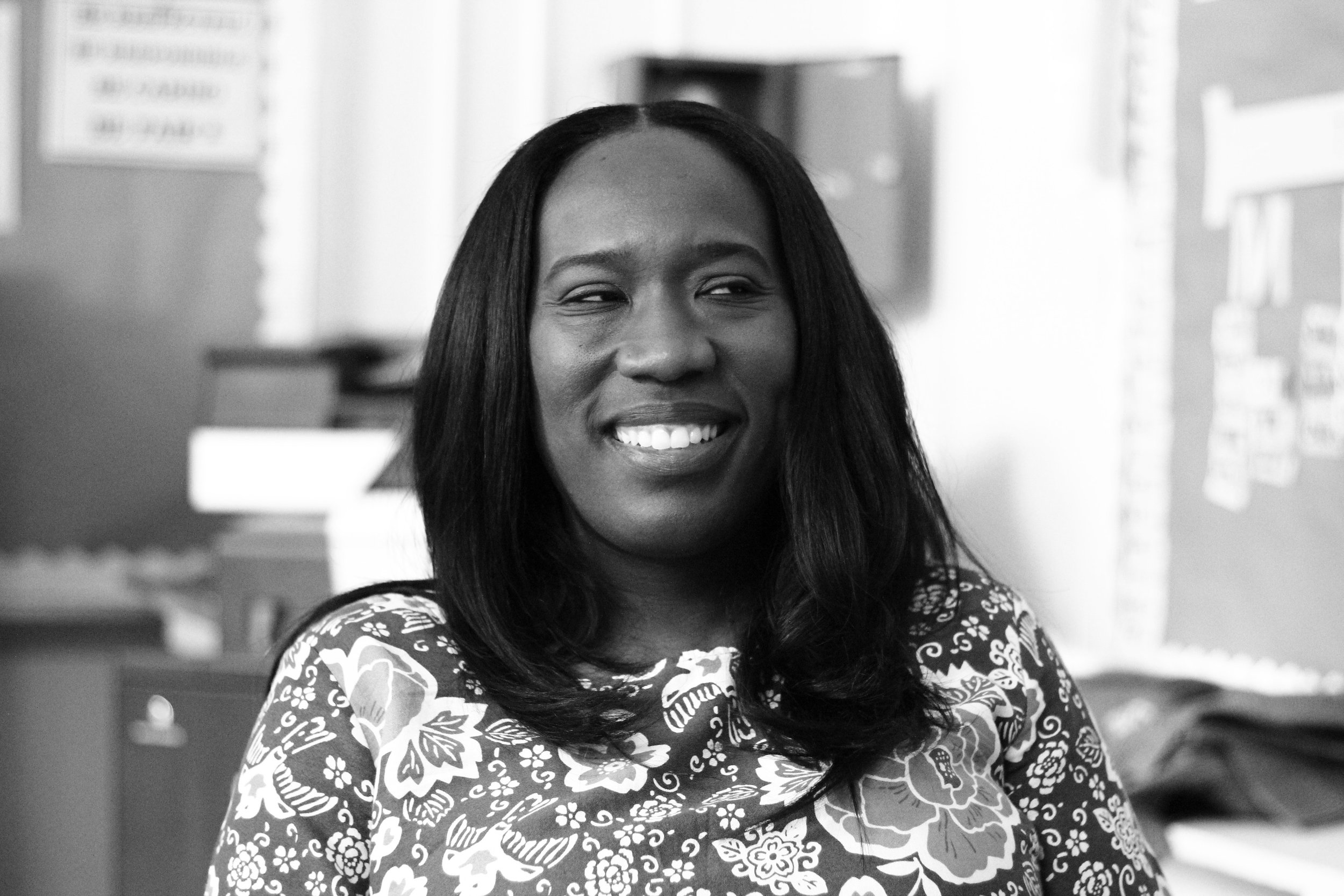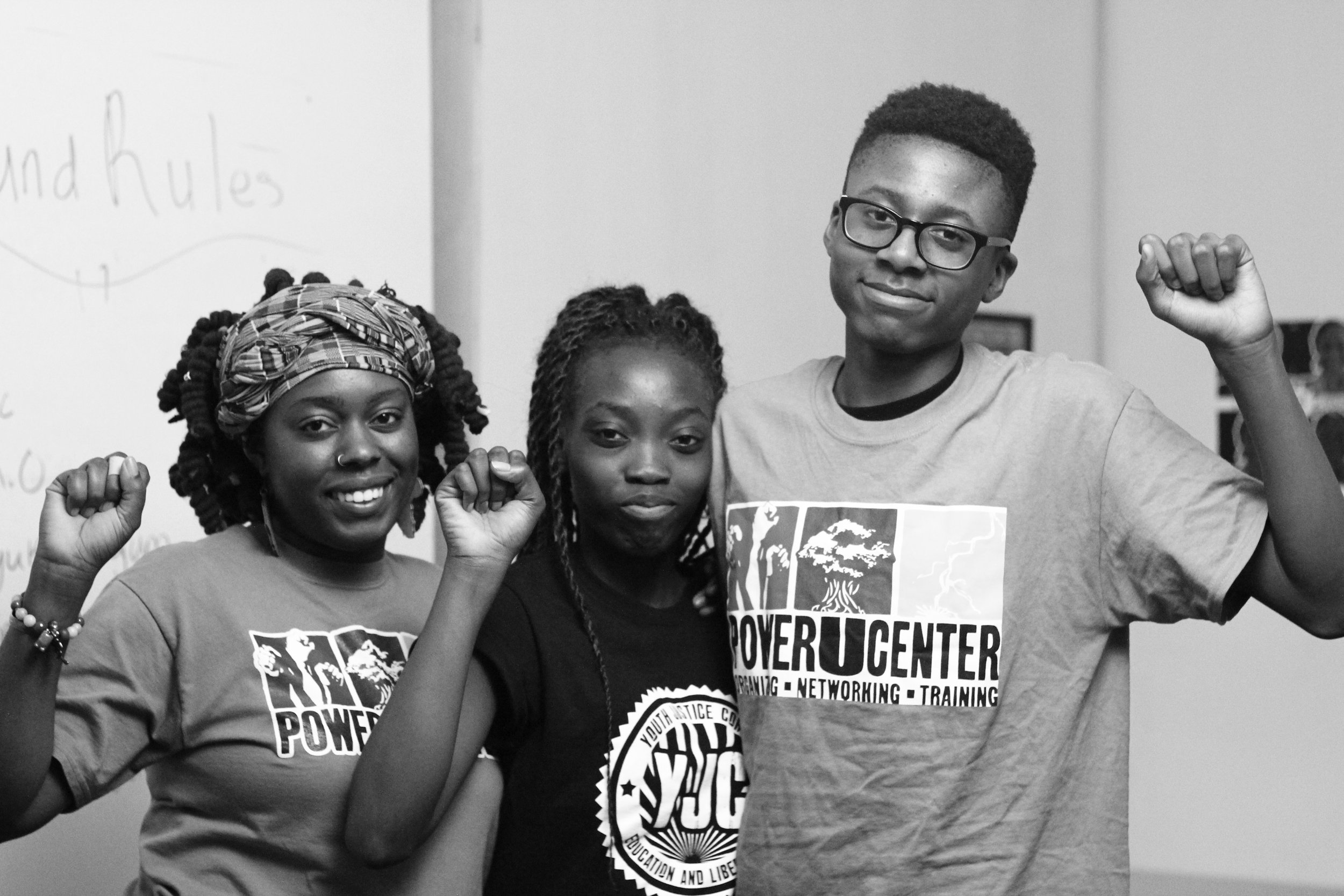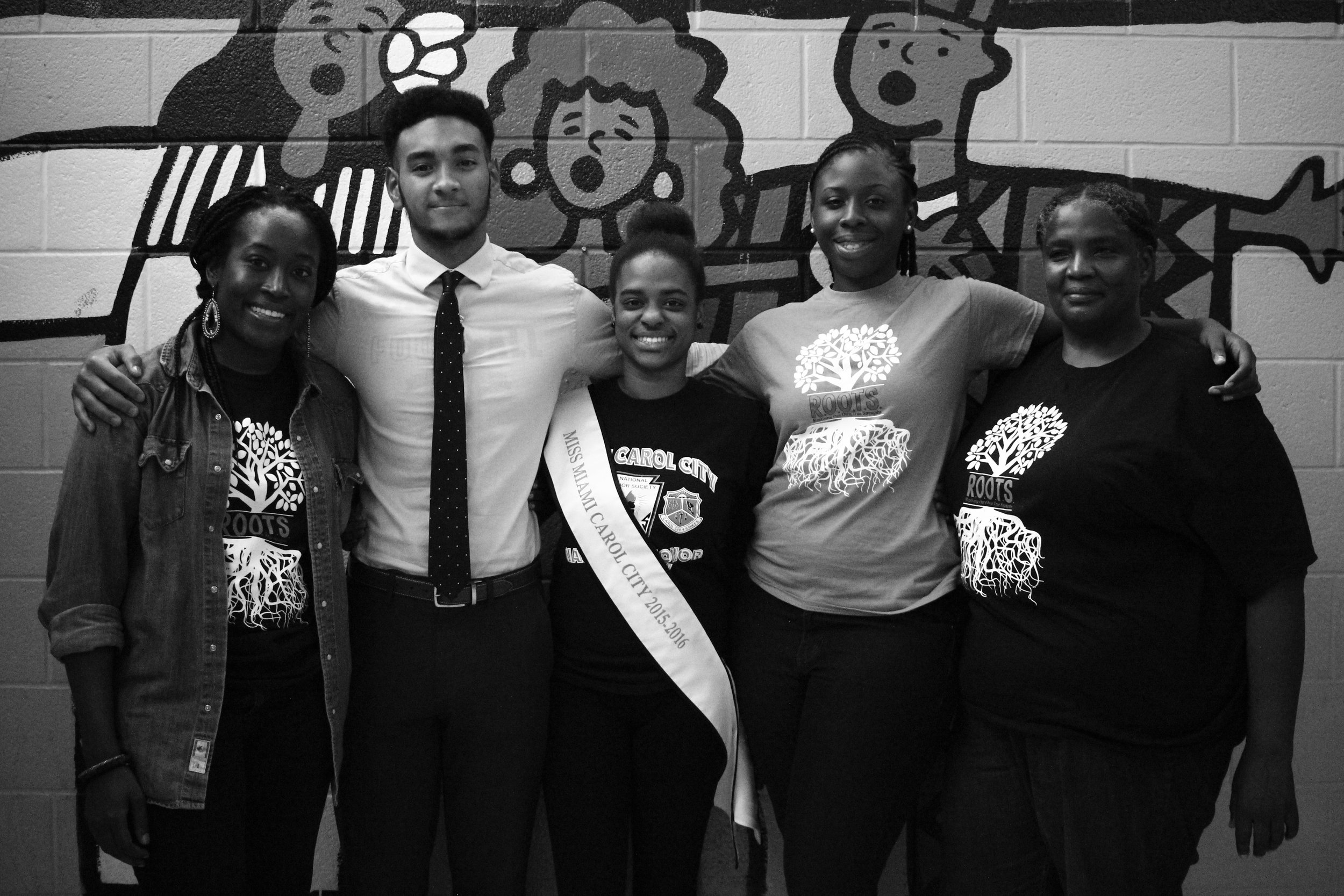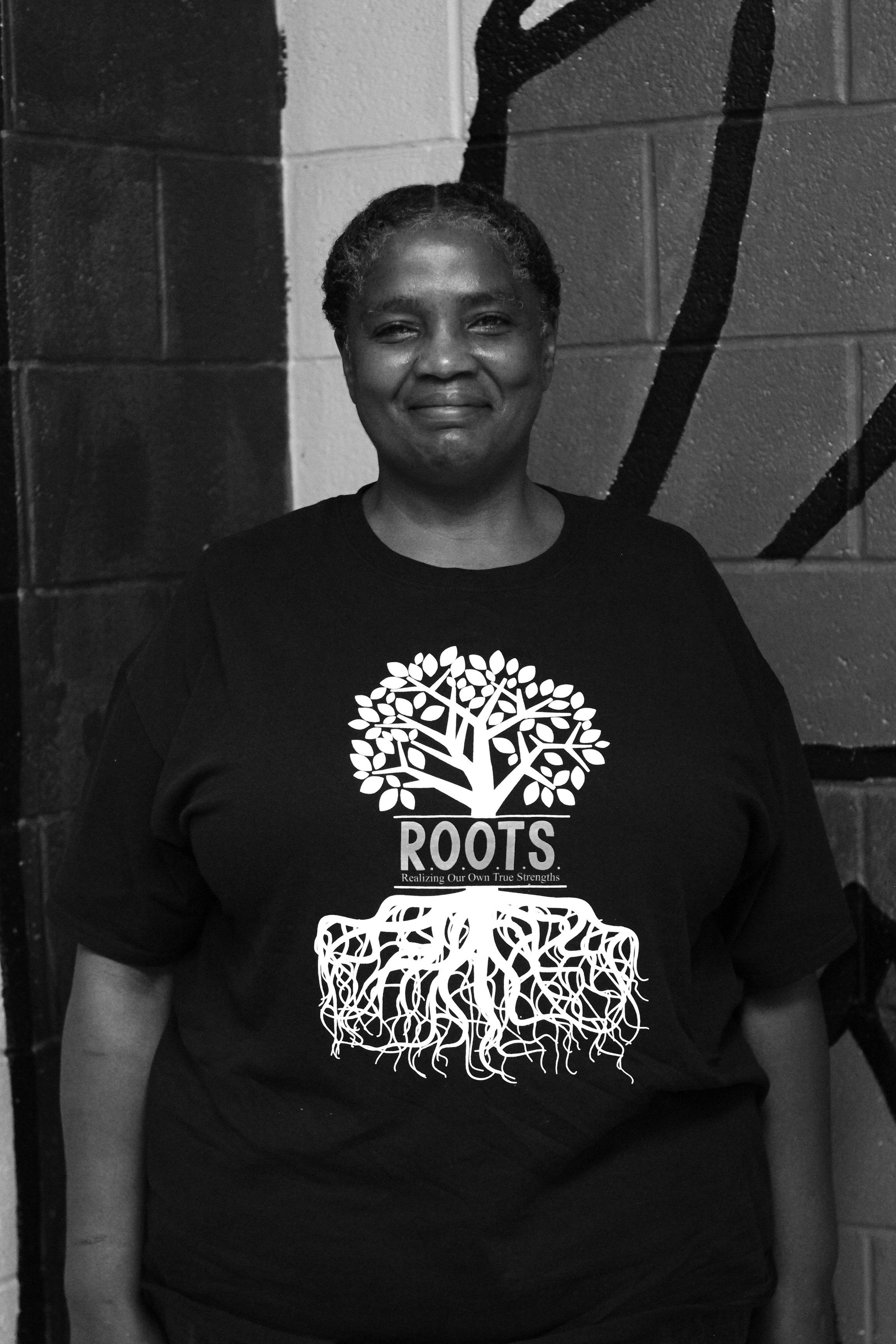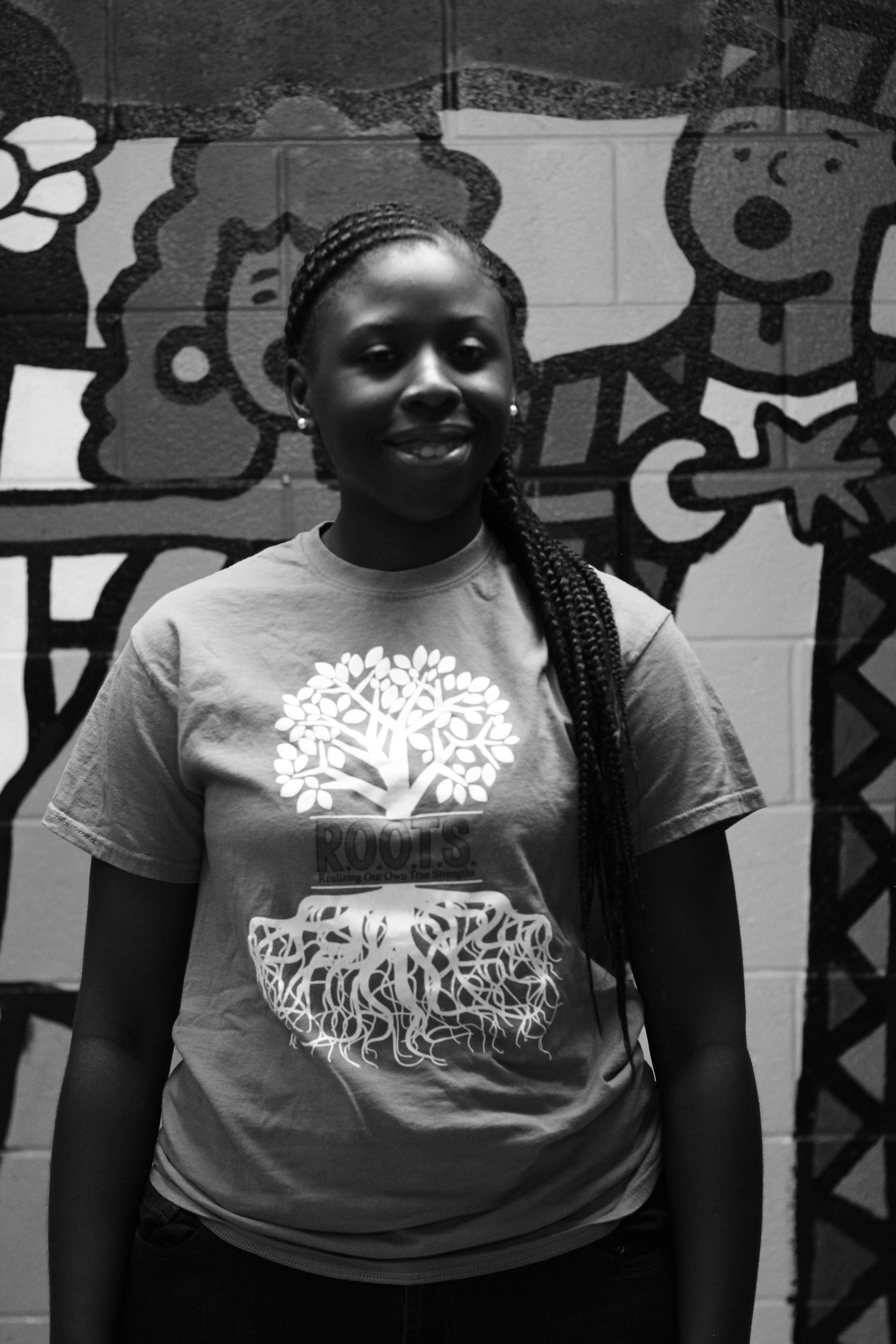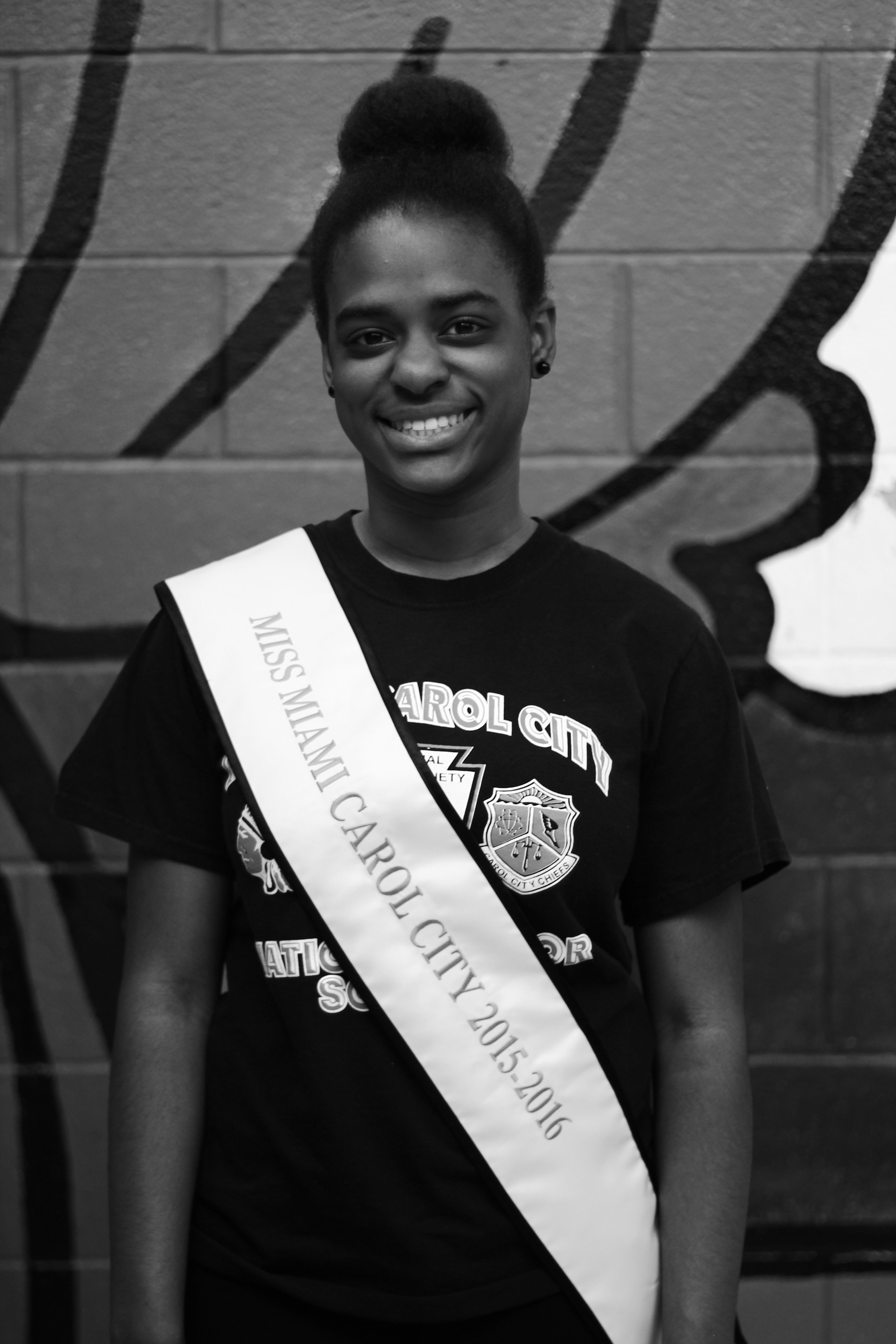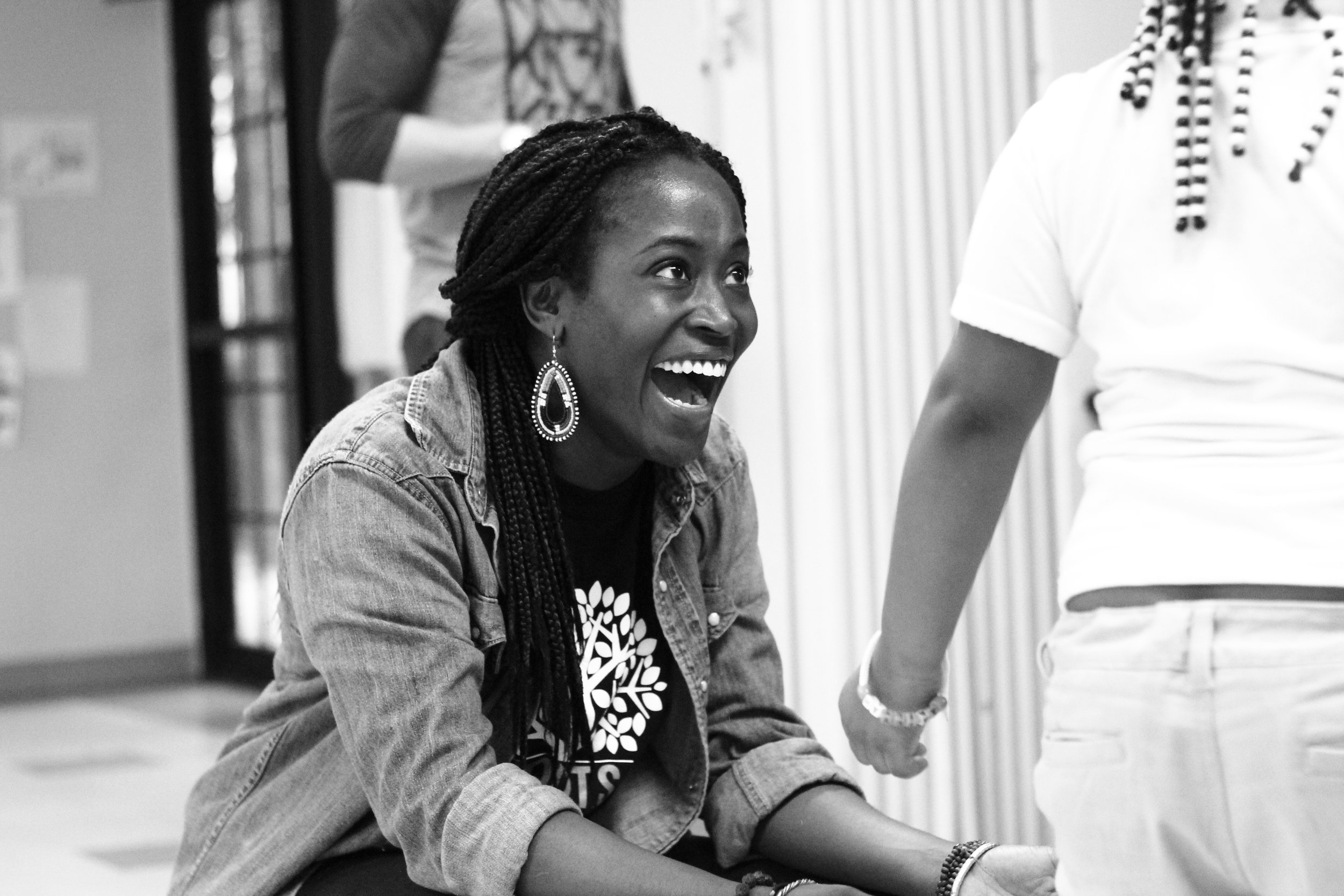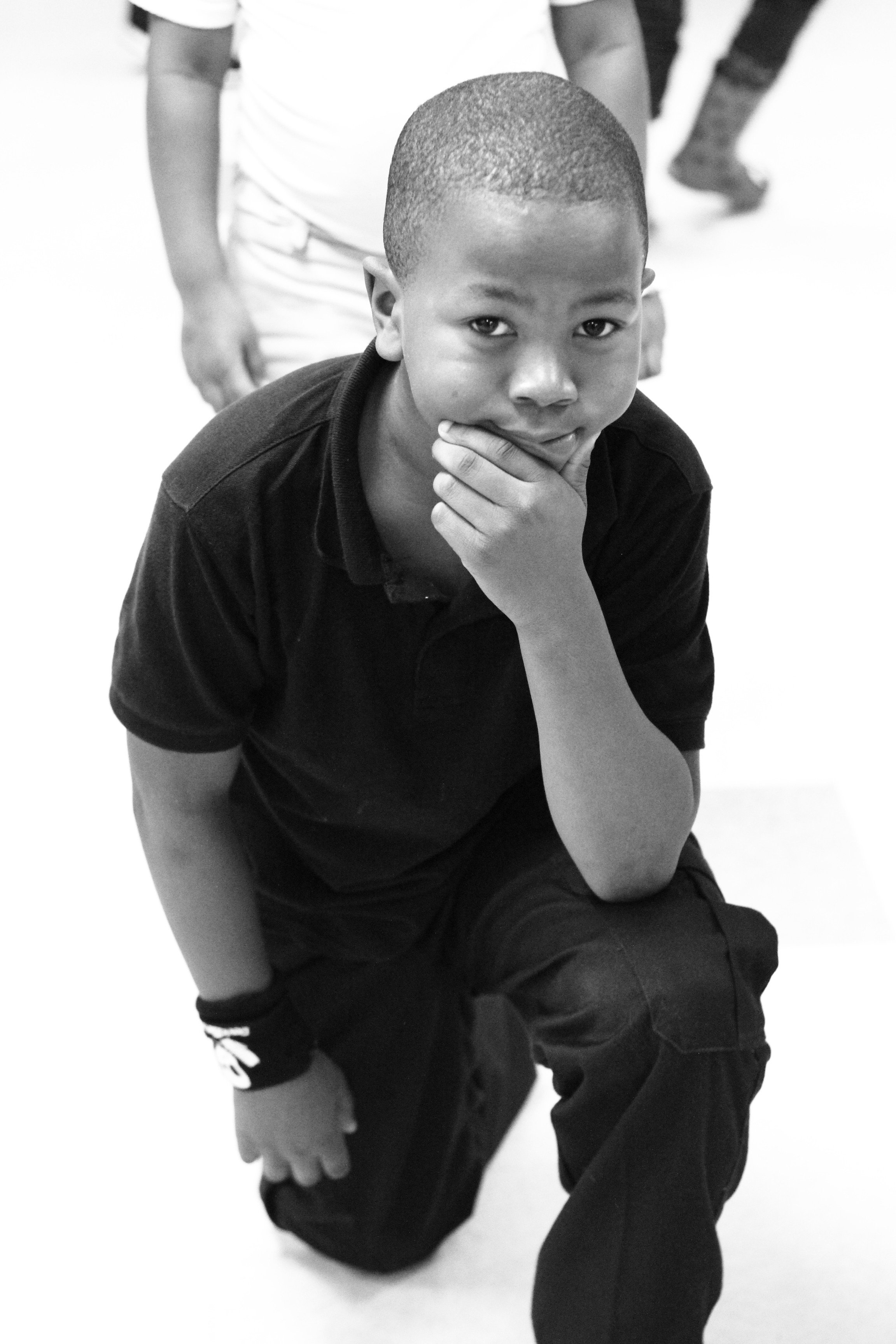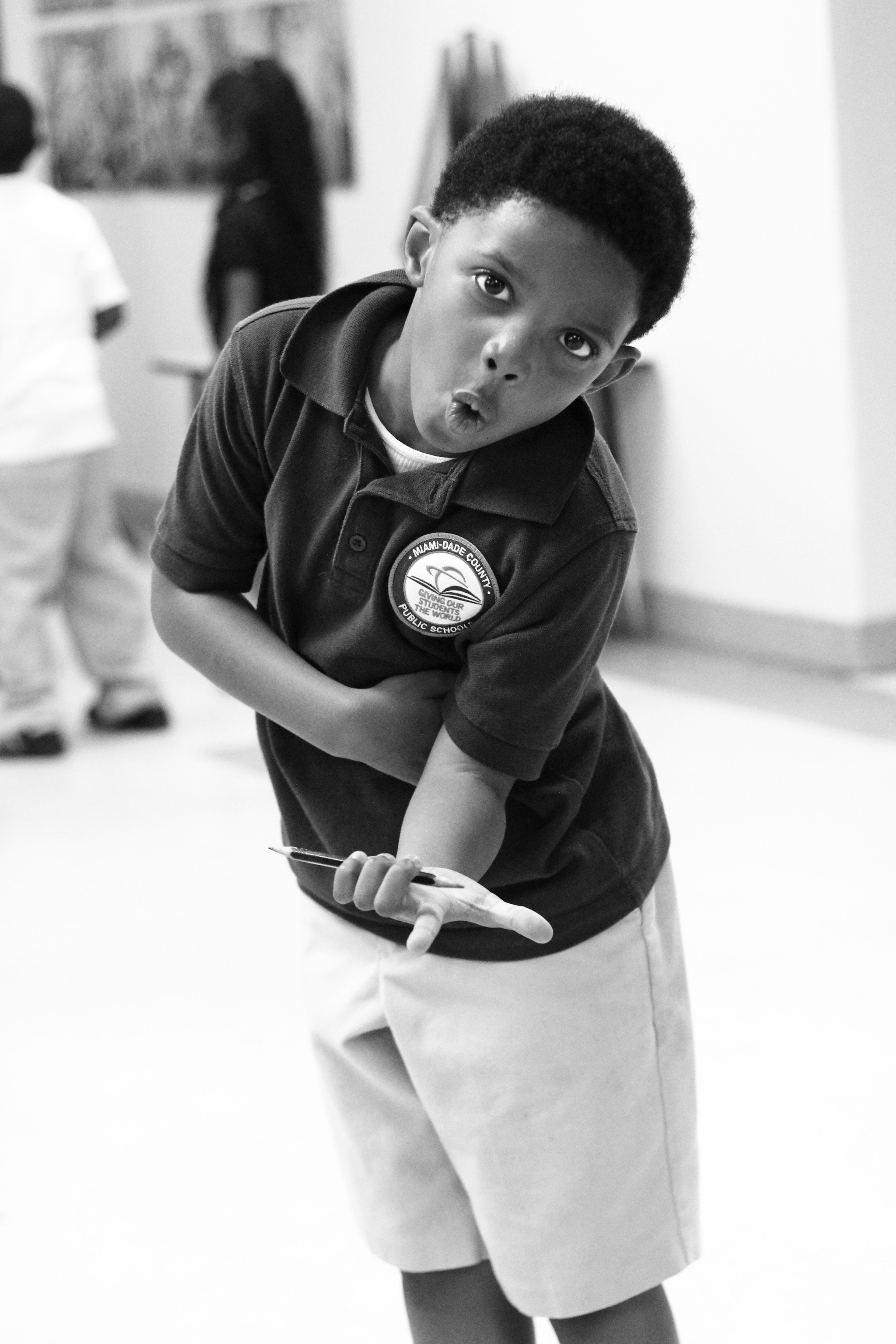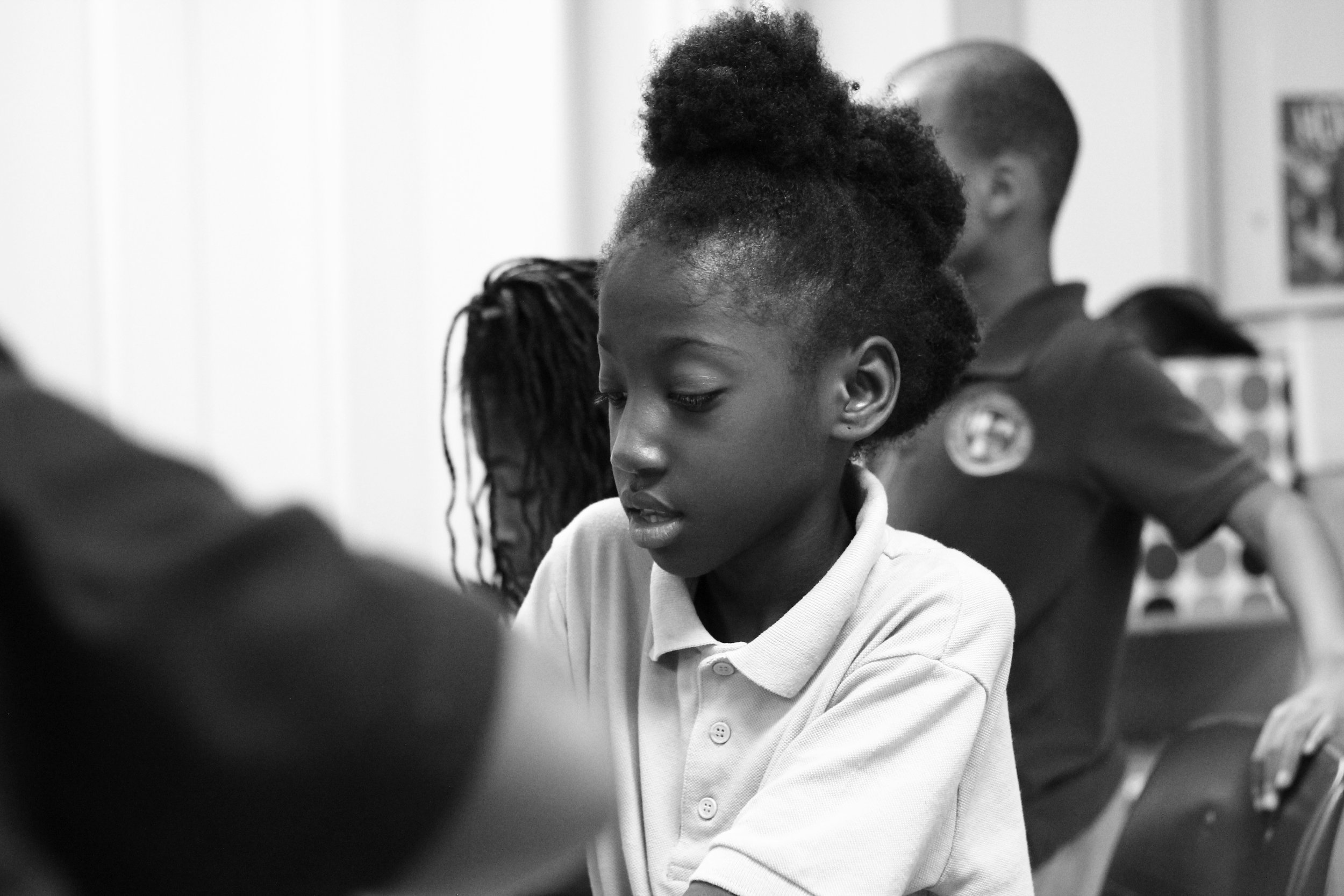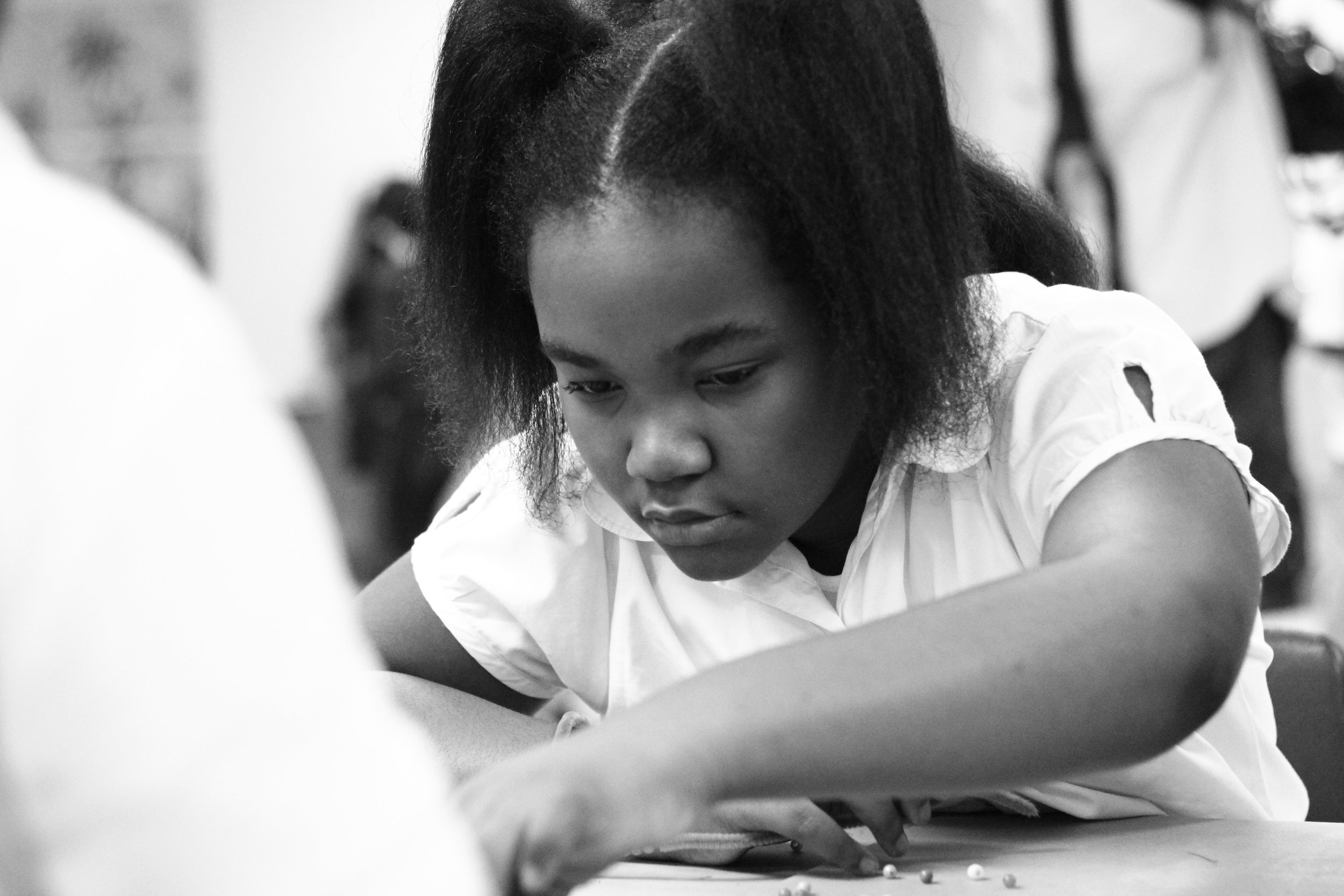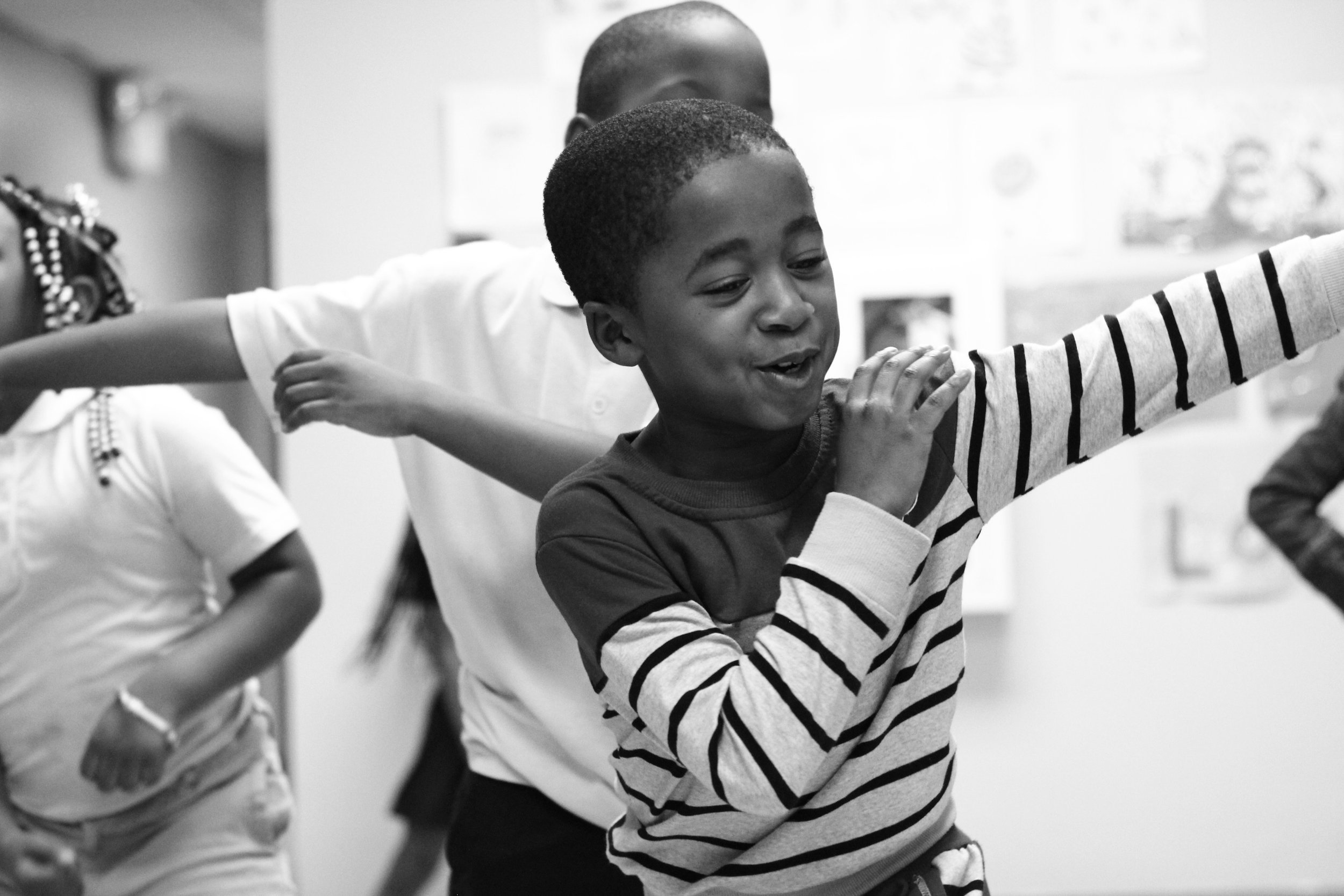Imagined Futures of Black Faculty is a digital and visual scholarship project that brings together artistic portraits, film interviews, essays, poems, and short stories from Black college and university faculty about the futures they imagine. Conceptualized in collaboration with Dr. Candace Hall, the project’s primary aims include using speculative approaches to increase our collective visibility, provide new models for self-authorship, and envision radical possibilities of Black life-making within and beyond the academy. The project was initiated at the 2023 Association for the Study of Higher Education (ASHE) meeting in Minneapolis and included a day-long pop-up studio for conference attendees to be interviewed and have their portraits taken. After ASHE, the Imagined Futures Studio went on the road, interviewing and photographing dozens current and future Black faculty in Chicago, Philadelphia, and Minneapolis throughout 2024.
#PoliceFreeCampus Podcast (2023)
The #PoliceFreeCampus Podcast engages organizers, practitioners, and scholars in discussing the challenges and possibilities for colleges and universities without the police. This public scholarship program builds on the Campus Abolition Research Lab’s ongoing research focus on campus policing (i.e., #PoliceFreeCampus Project) and highlights the work of other scholars and organizers who focus on issues of harm, accountability, criminalization and punishment in higher and postsecondary contexts. In particular, each episode challenges common myths about policing in college and community contexts to include the ways police are both unnecessary and insufficient in addressing root causes of systemic violence and interpersonal harm.
Advancing Race-Conscious Understandings of Campus Safety (2022)
The purpose of this project was to interrogate the permeability institutional boundaries (i.e., social, symbolic, and spatial), which are often (re)enforced by policing, and to understand the incommensurability of race-conscious community-centered understandings of safety with law enforcement approaches to campus security. In particular, this project engaged in deep and prolonged study of Black-led campus-community organizing efforts grounded in its commitment to work collaboratively with and in service to the predominantly Black communities in West Philadelphia, where the University of Pennsylvania and Drexel University are located. Using traditional and digital ethnographic methods, the multi-modal study examined the following research questions:
In what ways do campus-community organizers’ notions of race-conscious campus and community safety differ from campus law enforcement approaches to public safety and security?
What resources and alternative investments do campus-community organizers believe are needed for a police-free campus environment?
How do institutions understand and respond to public demands for divestments in the institution of policing?
Among its contributions to the higher education and social movements literature, this project moved beyond the institutional centricity of contemporary research on activism in college and expanded the analytical focus to include online and off-campus venues of activist participation. Additionally, this project brought together two otherwise separate contexts of postsecondary life-making into conversation regarding a critical issue to the future of higher education’s relationship with the communities in which many postsecondary institutions are located.
Longitudinal Depictions of Student-Led Organized Resistance (2019-2024)
The purpose of this longitudinal, multimodal ethnographic research project is to reflect both the breadth and depth of contemporary student political engagement at the intersection of campus and community. In particular, through the use of ethnographic photography (see attached), film, and digital media artifacts (see attached), this project provides a series of audiovisual snapshots from a series of movements to include Black Lives Matter on campus (2014-2016), the contemporary campus abolition movement (2020-2023), and the Campus Intifada (2023-2024). Building on the earlier work of Rhoads (1998), Morgan and Davis (2019), and Davis (2019), Longitudinal Depictions of Student-Led Organized Resistance (LDSOR) serves as an ongoing digital research project that captures how activism and grassroots organizing traverses the social, symbolic, and spatial boundaries between postsecondary institutions and the communities in which they operate.
LDSOR is grounded in more than a decade of (digital) ethnographic inquiry conducted in 24 cities and across more than three dozen postsecondary institutions (including two-year colleges to 4-year universities, public and private institutions, historically Black colleges and universities, and historically white-serving institutions). In part, this project aims to connect and convert readers of higher education activism and social movements scholarship to viewers and listeners of campus-community organizers actively engaged in sociopolitical and institutional transformation.
Longitudinal Depictions of Student-Led Organized Resistance Vol. 3: Visualizing the Campus Intifada (2024)
CARL Research Associate Nia Hall provides an introduction to the Encampment for Gaza at the University of Michigan.
SAFE and TAHIR Coalition member’s address from Salma Hamamy at the Encampment for Gaza at the University of Michigan.
Dr. Charles H.F. Davis III offers faculty comments at the Encampment for Gaza at the University of Michigan.
Longitudinal Depictions of Student-Led Organized Resistance Vol. 2: Ethnographic Film and Documentary Photography from the Campus Abolition Movement (2022)
Longitudinal Depictions of Student-Led Organized Resistance Vol. 1: Ethnographic Film, Photography, and Digital Artifacts from the New Student Movement (2019)
Saving Tomorrow, Today: The Curriculum of New America (2016)
Saving Tomorrow, Today: The Curriculum Of New America is a feature-length documentary that examines how educators, creatives and critical thinkers are collectively working to create spaces where Black and other racially marginalized students can grow. The film was written and hosted by Dr. Charles H.F. Davis III, directed by Charlie Mysak, and produced in conjunction with Lighthouse Films and InteractiveOne and supported through funding provided by the University of Phoenix.
Saving Tomorrow Photo Gallery
Photo Credit: Charles H.F. Davis III
Press About the Film
Saving Tomorrow, Today (NewsOne)
Innovative Solutions to Complex Educational Problems (NewsOne)
Branded Content: Saving Tomorrow, Today (OneX)
American Matthew: Vignette of a Patriot (2014)
In his directorial debut, Charles H.F. Davis III presents American Matthew: Vignette of a Patriot, a rugged documentary short film that chronicles the story of multidisciplinary artist Matt Nelson. Beginning in 2013, in the wake of Zimmerman trial for the murder of Trayvon Martin, the film documents the process of creating an original work inspired by and in homage to Black boys and men subjected to state and state-sanctioned violence. One year after the verdict was delivered, Charles reunited with Matt in his hometown Dallas-Ft. Worth to reflect on his work, life, and criticism of contemporary American society.
Press About the Film
Pass The Popcorn: Short Film 'American Matthew' Rethinks Patriotism & Remembers Trayvon Martin (OKAYPLAYER)

